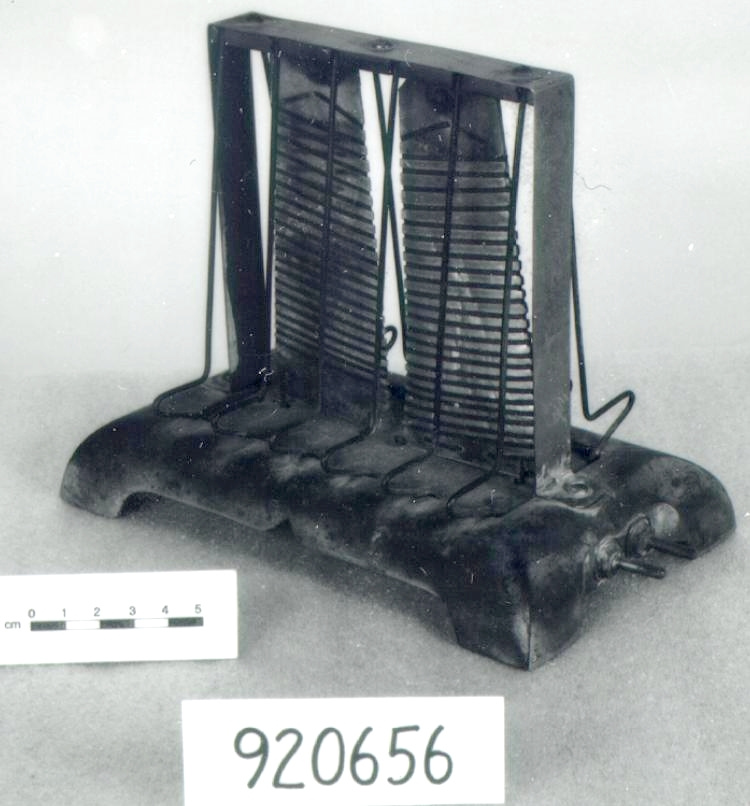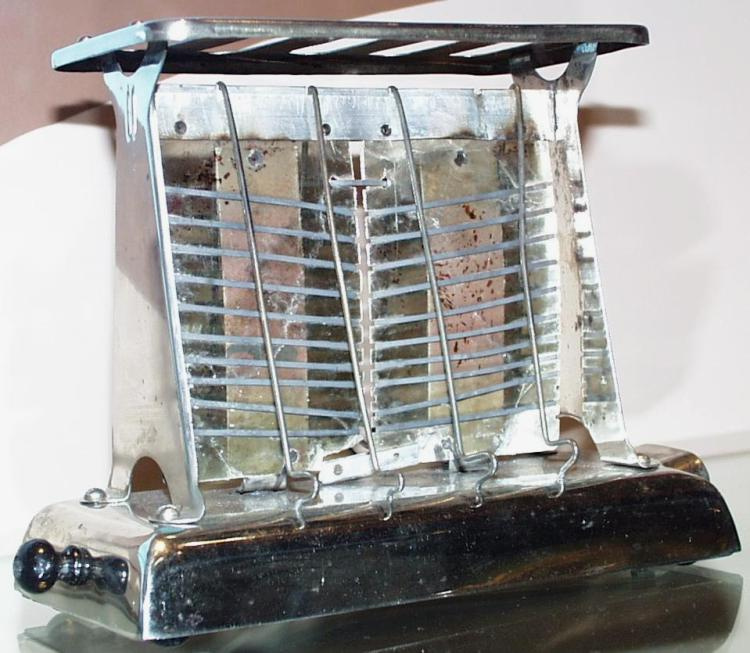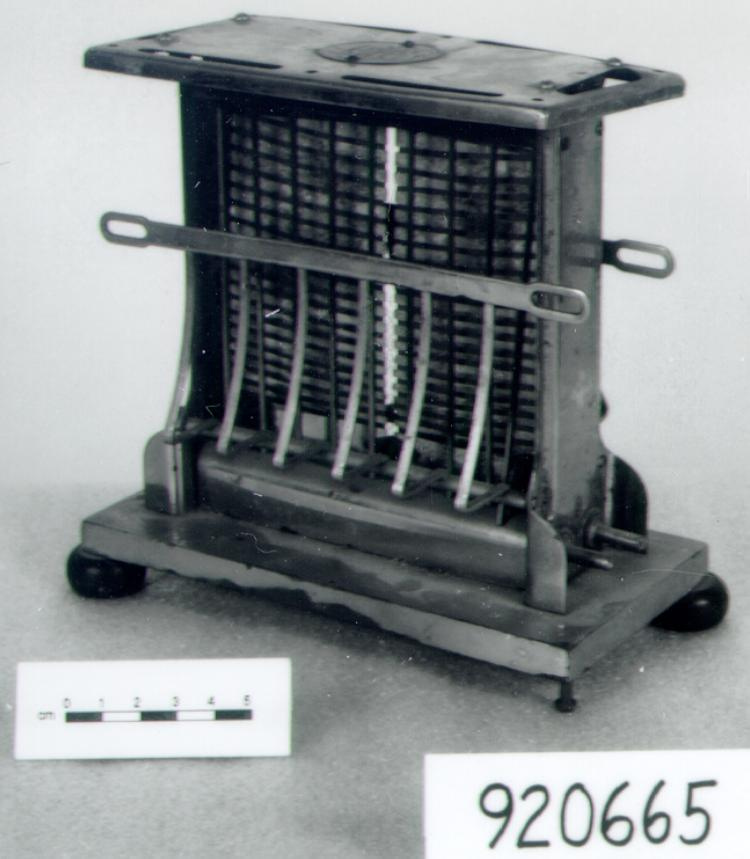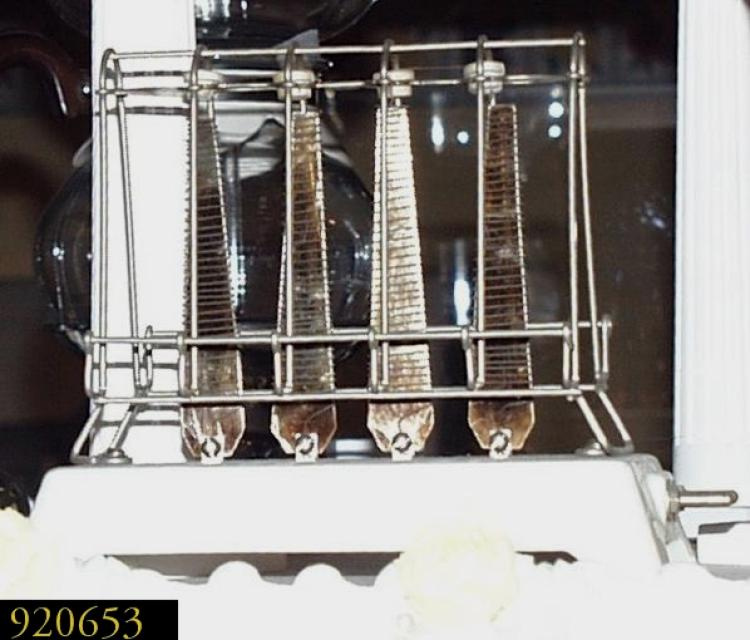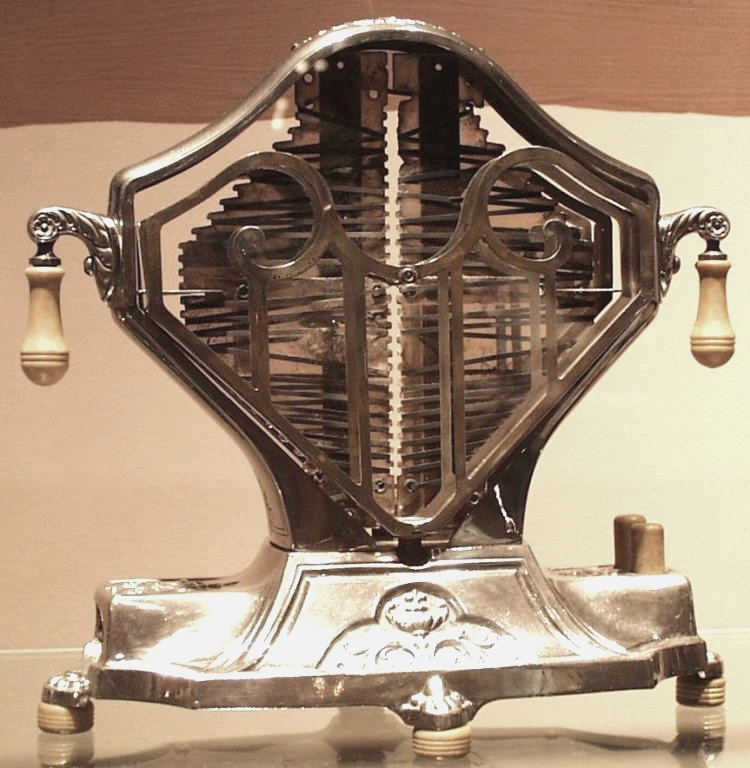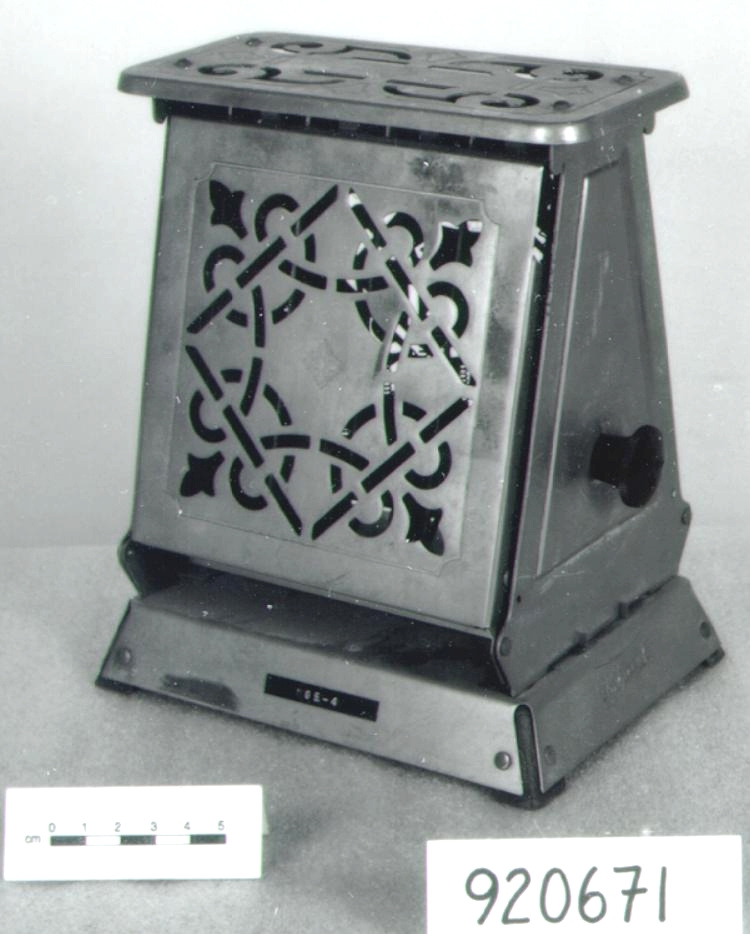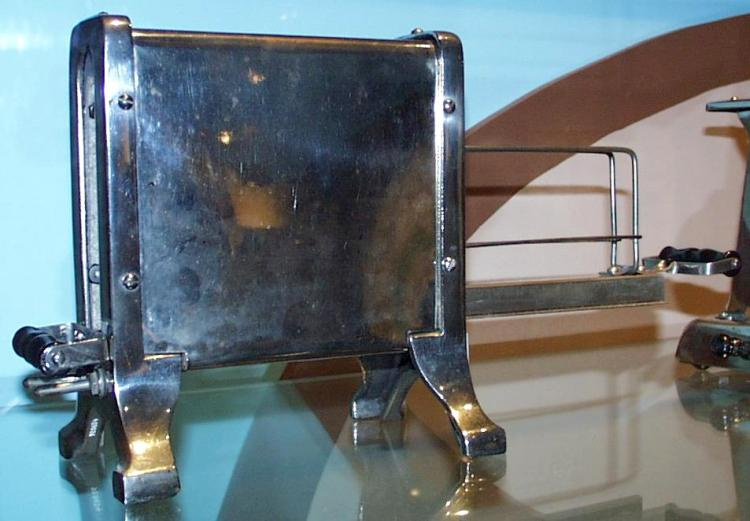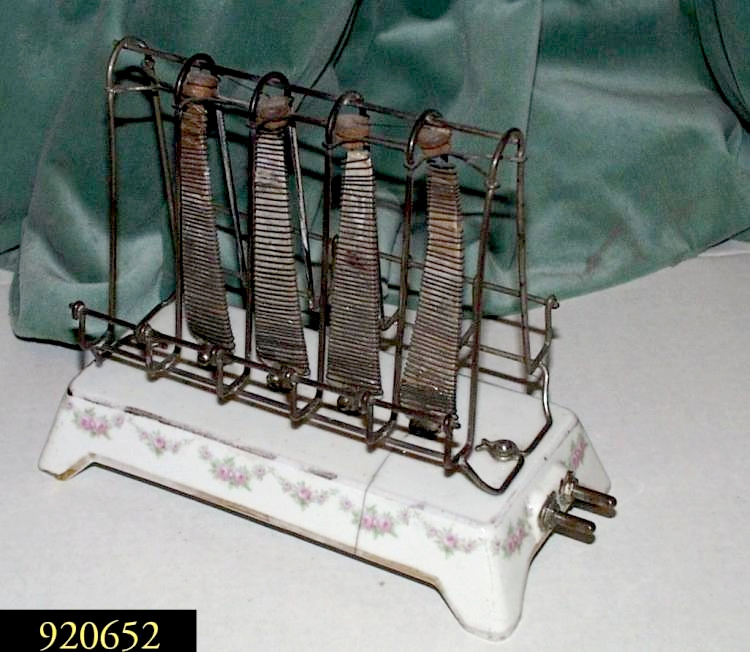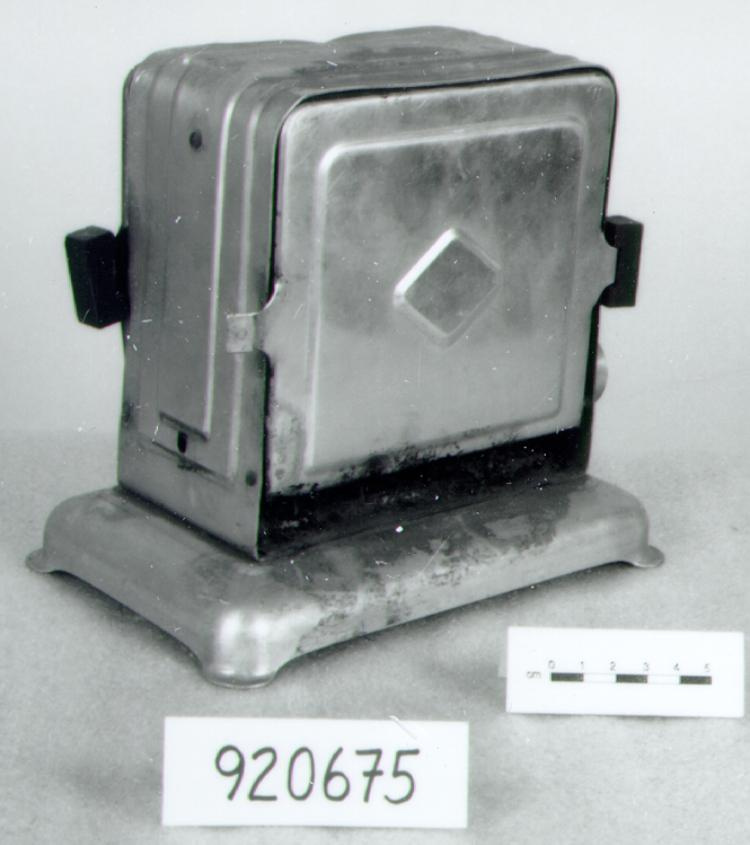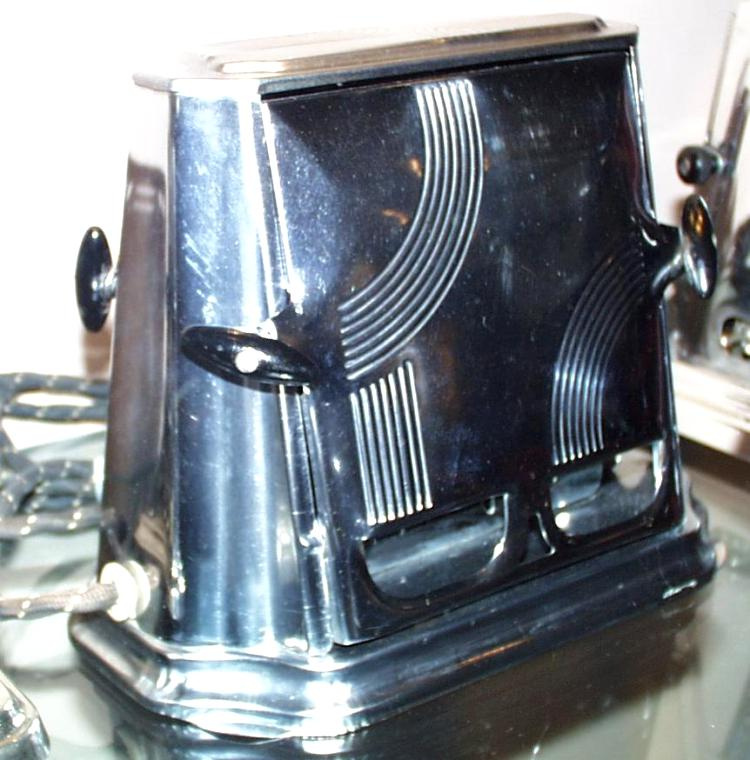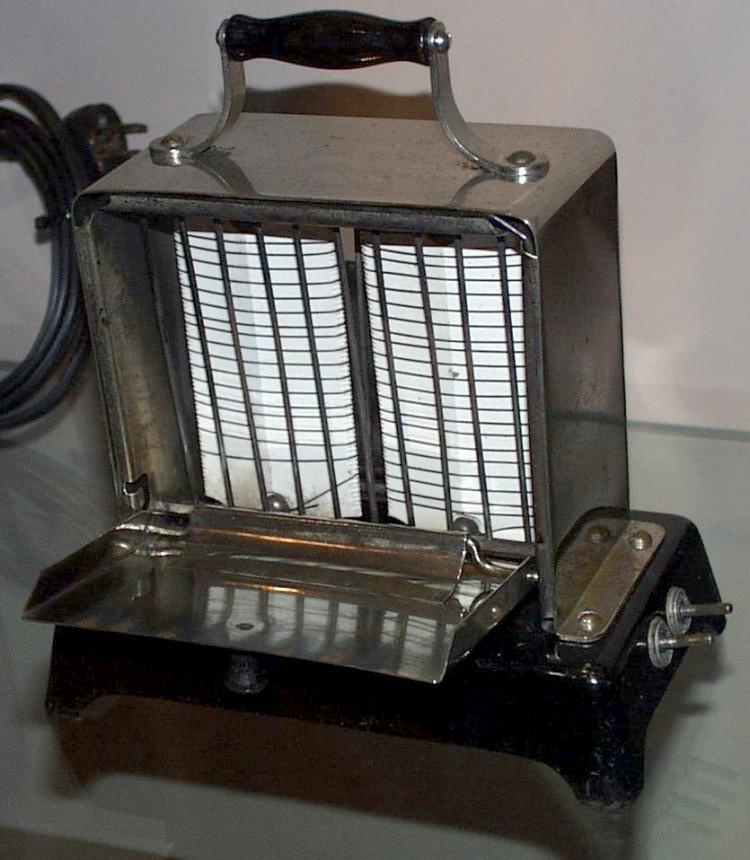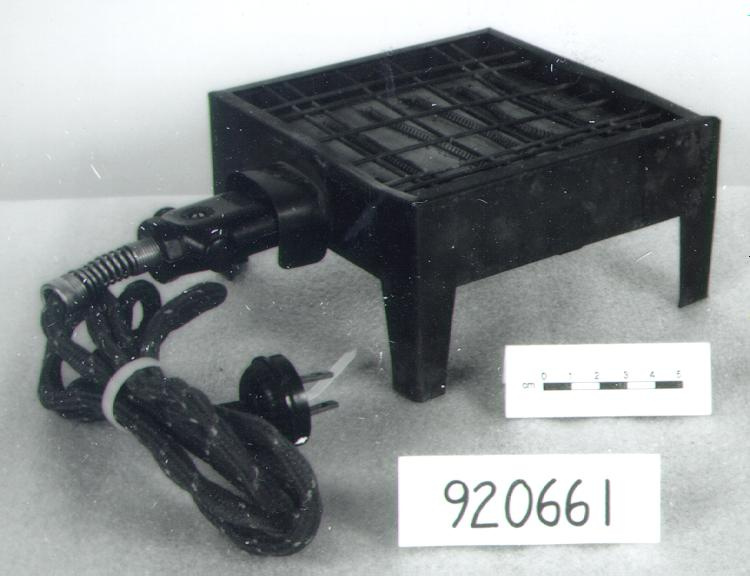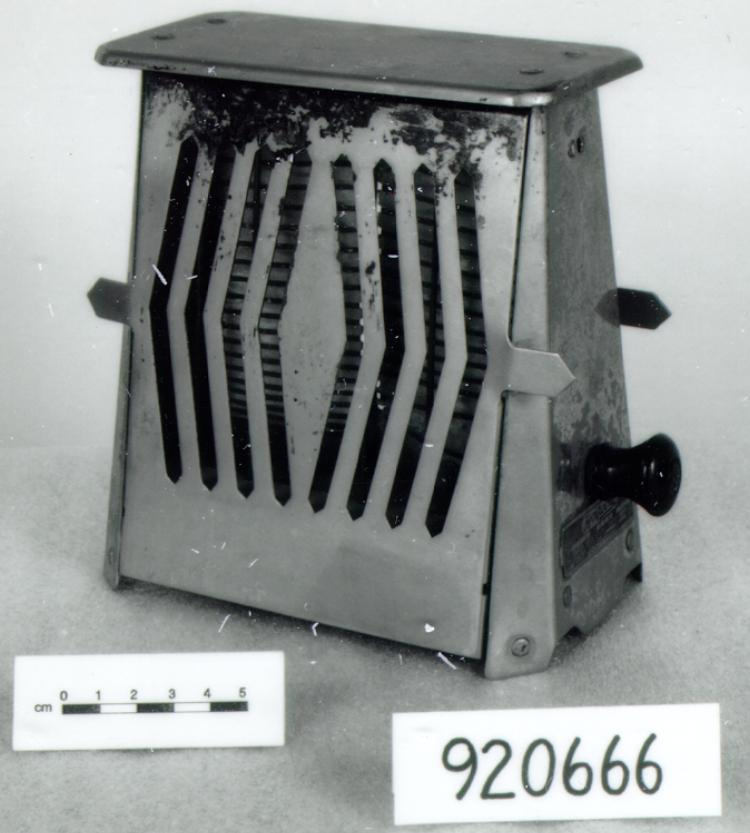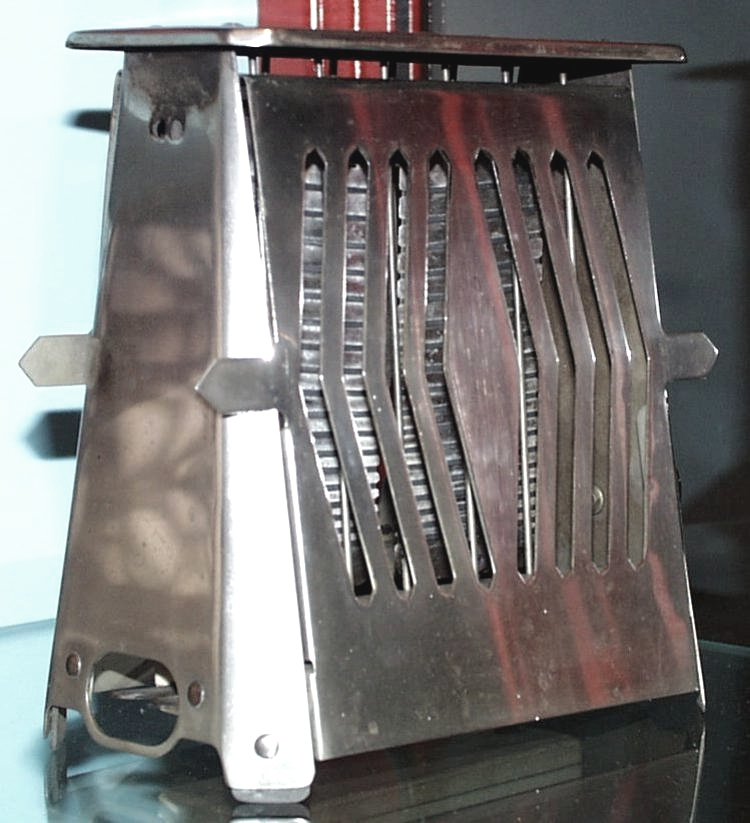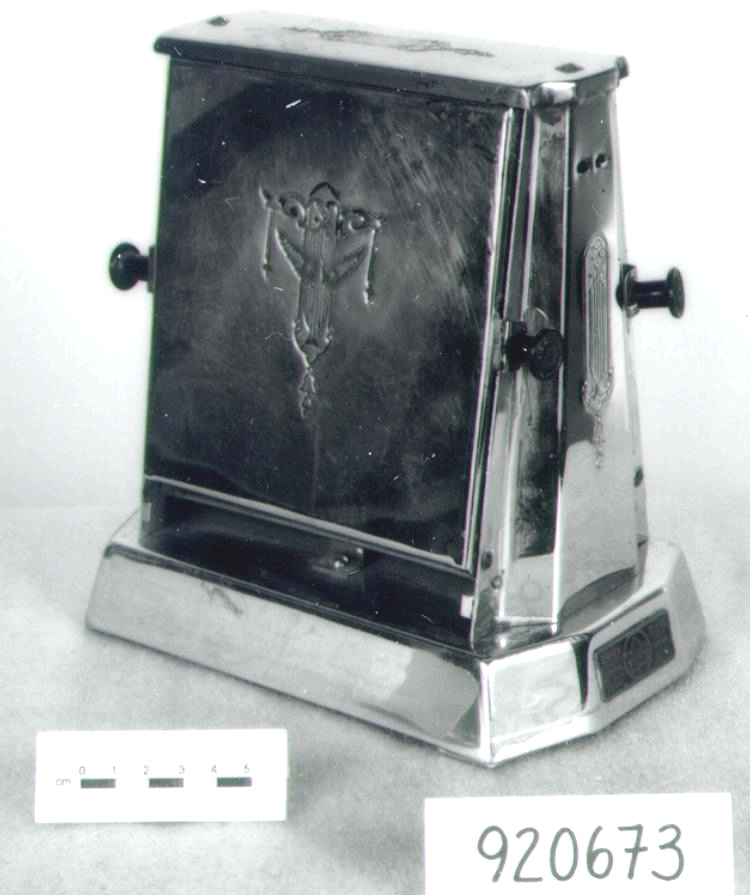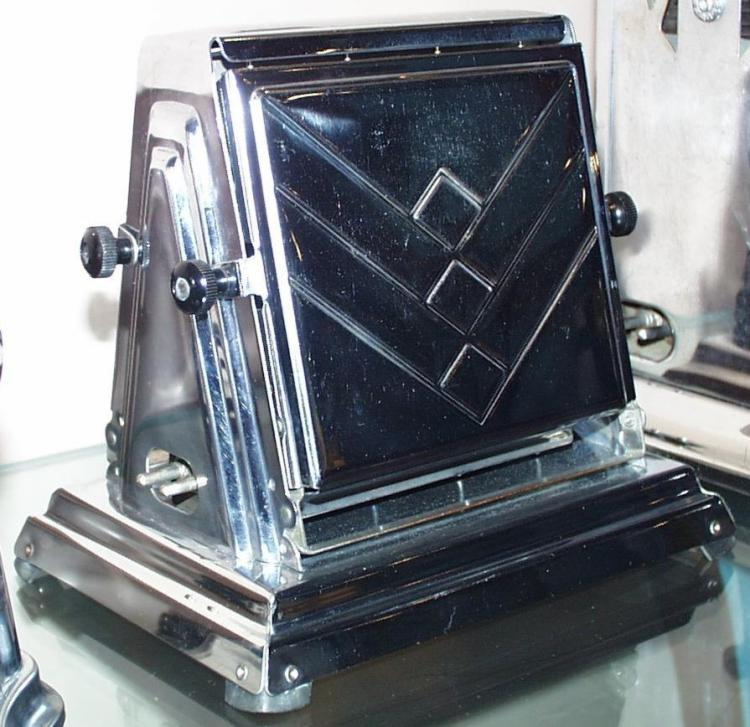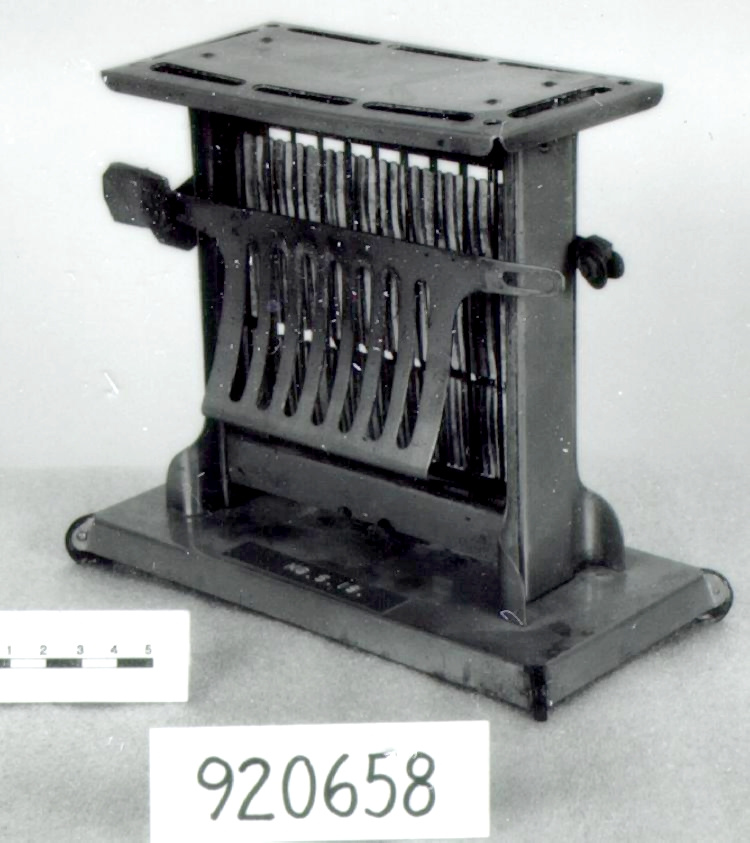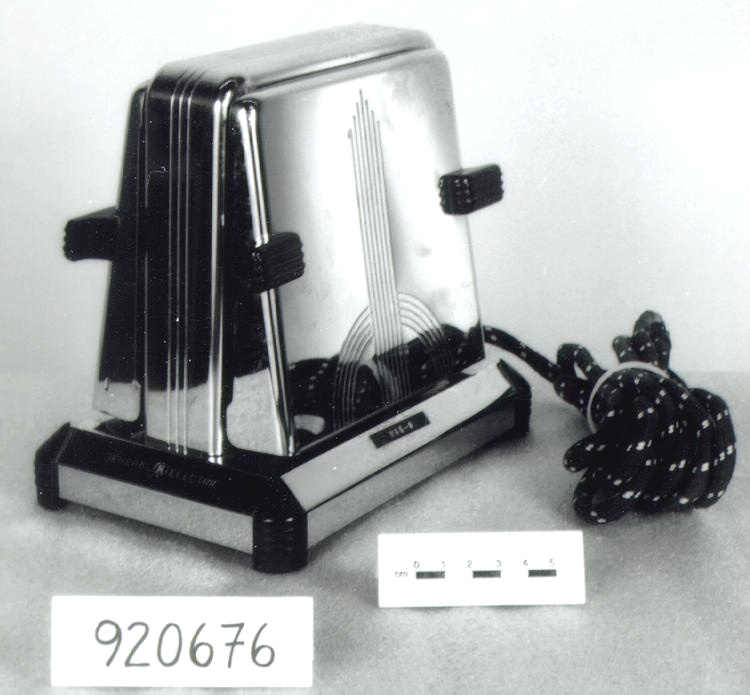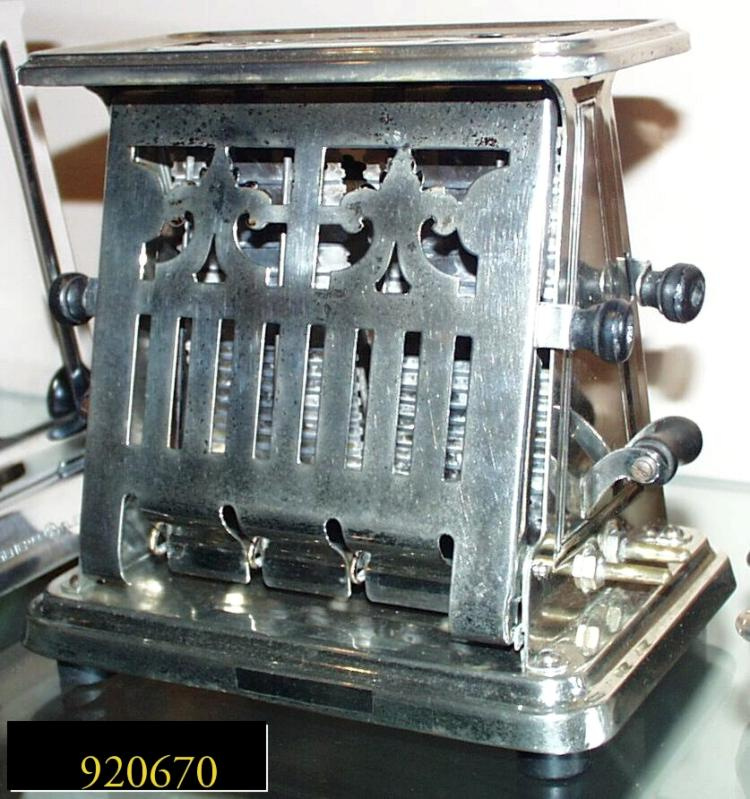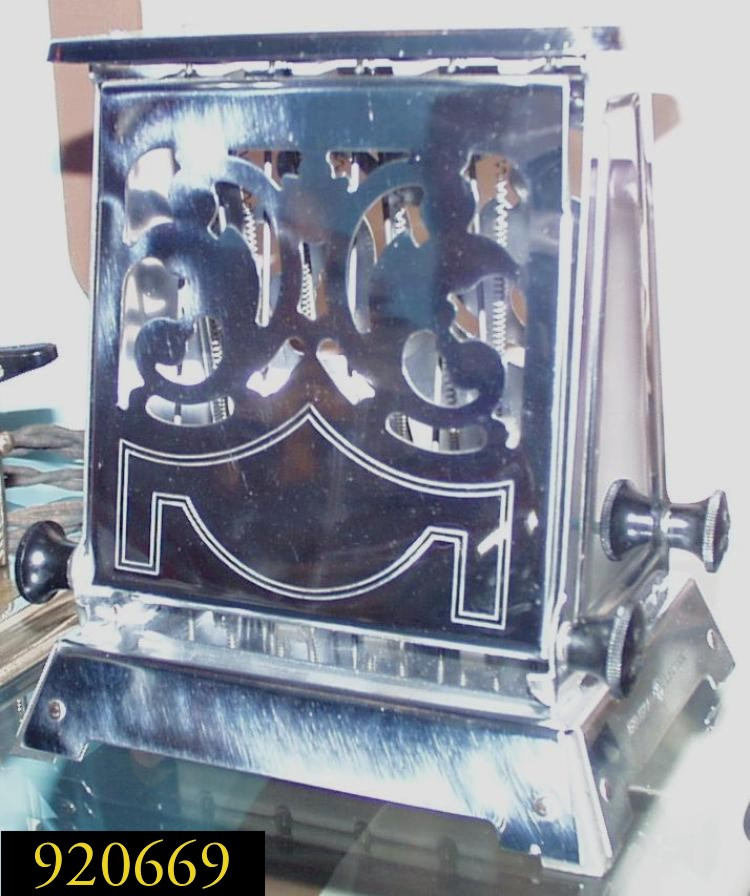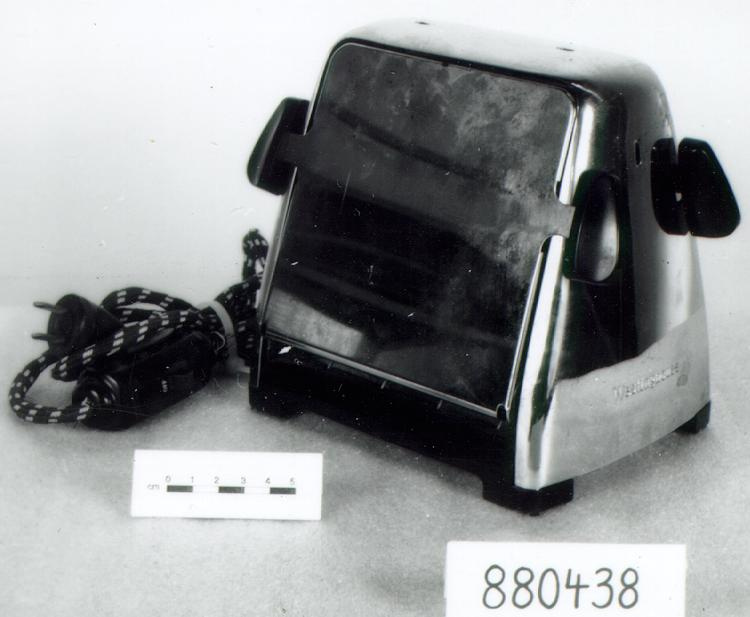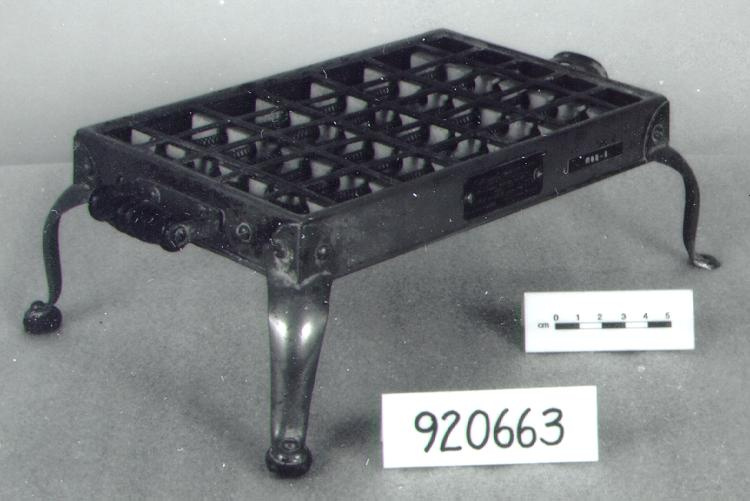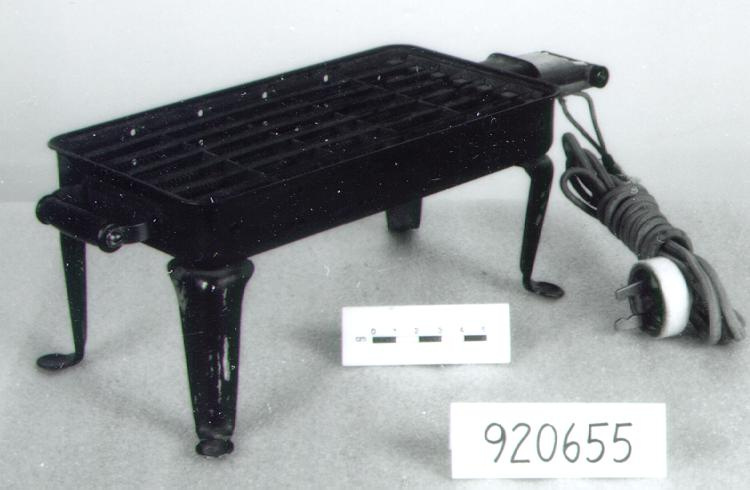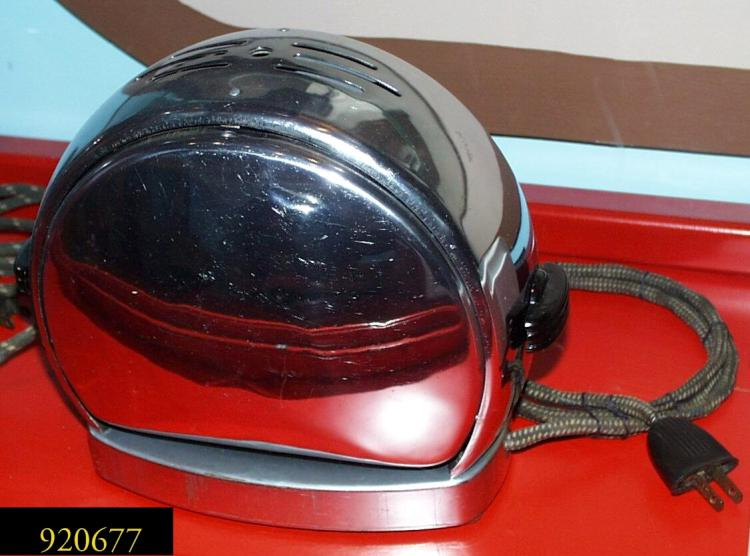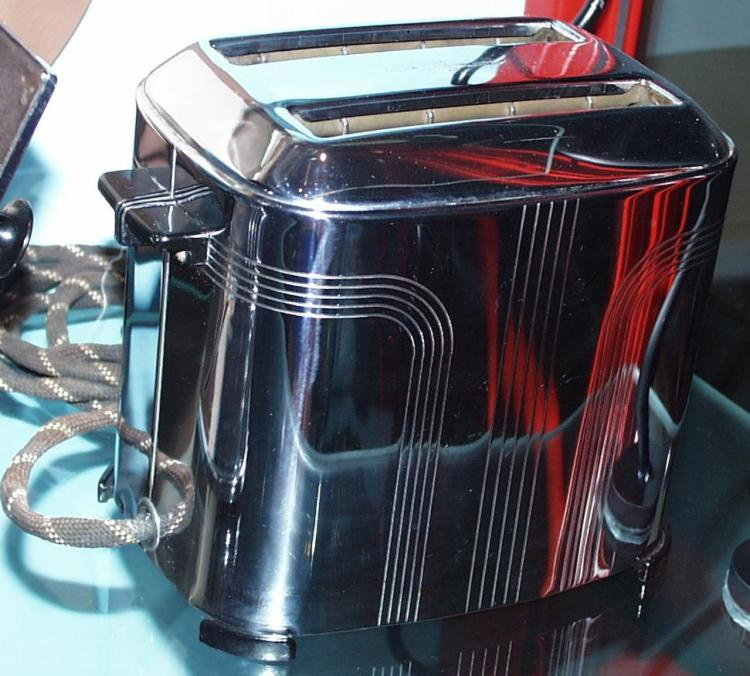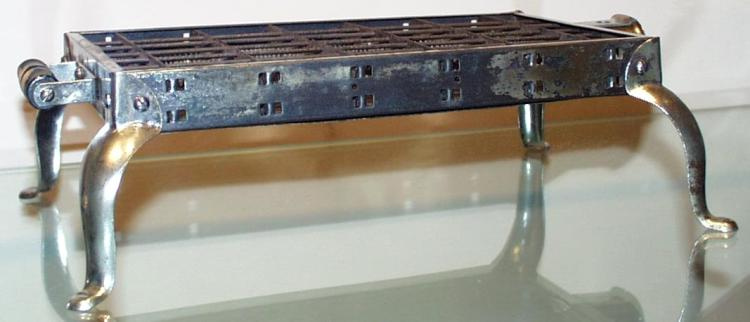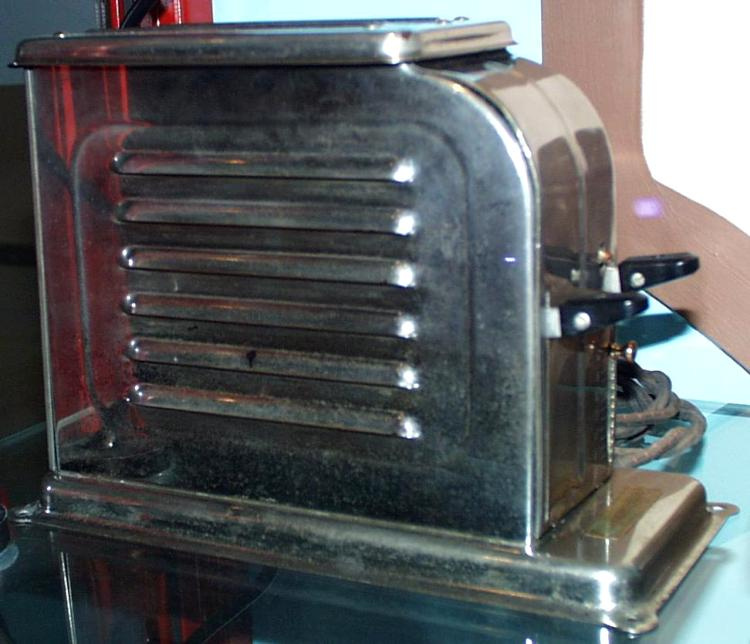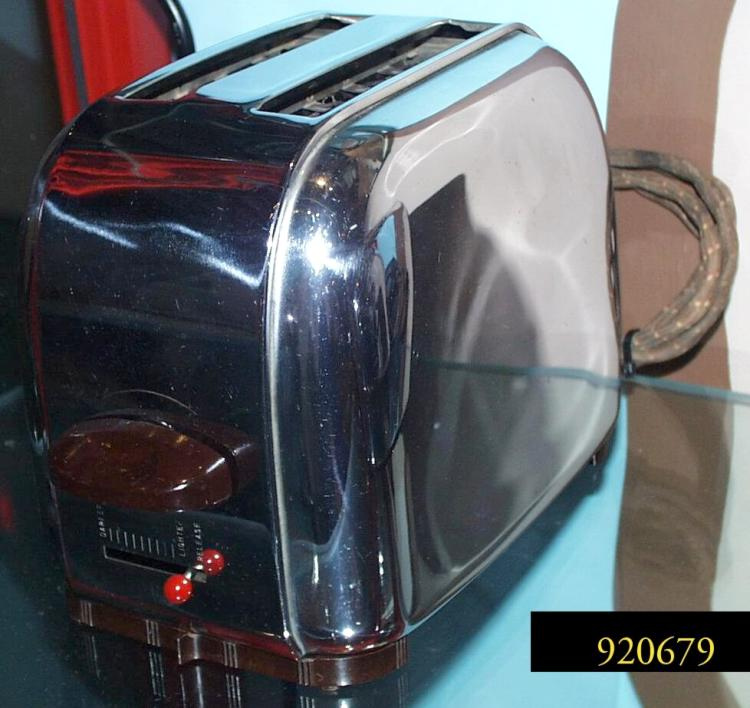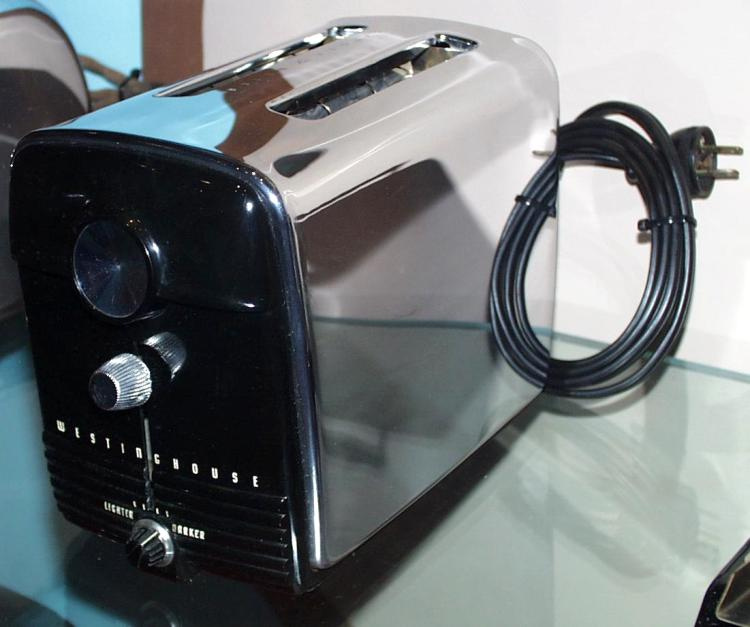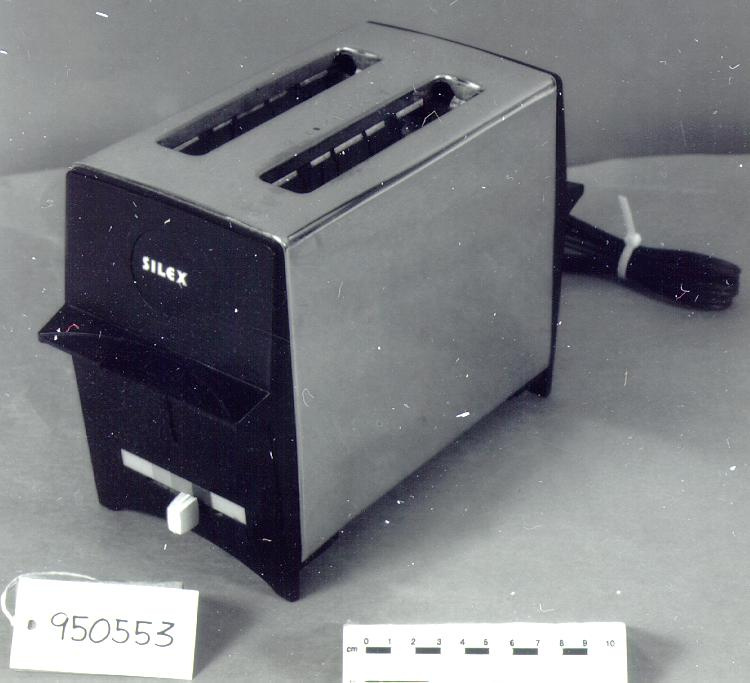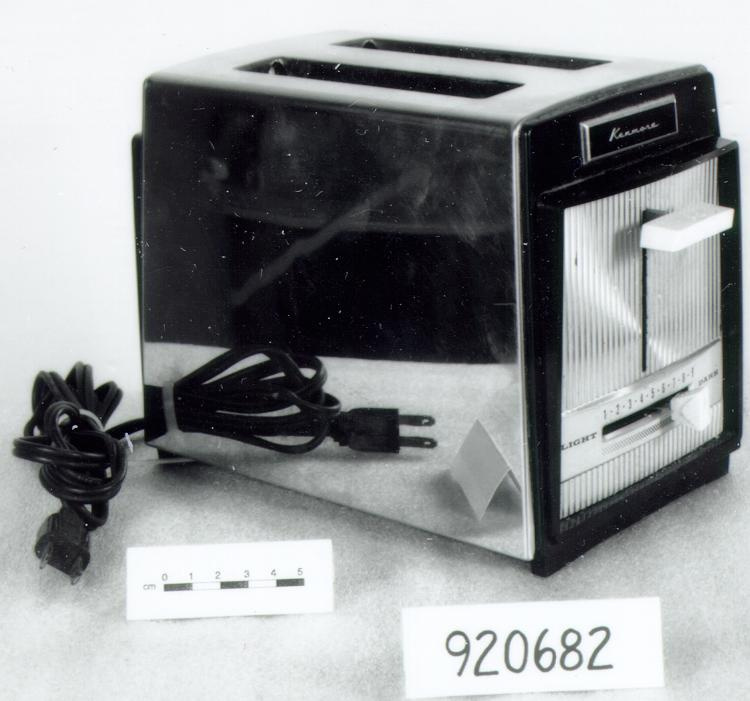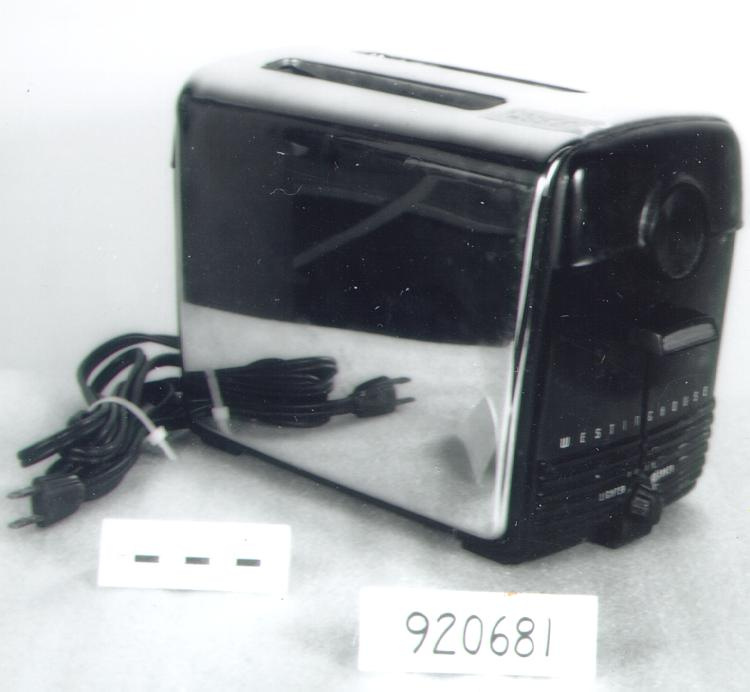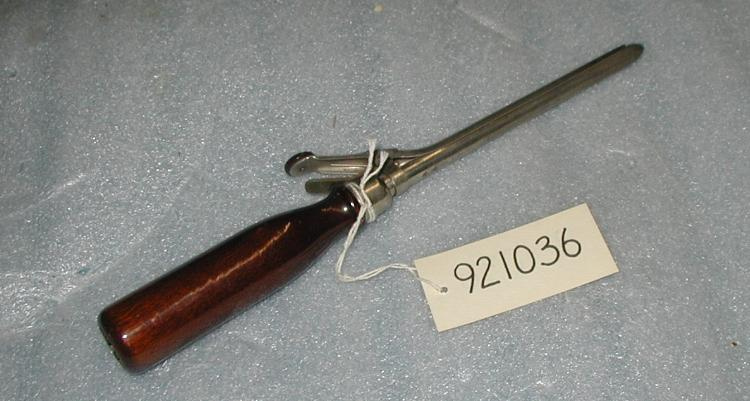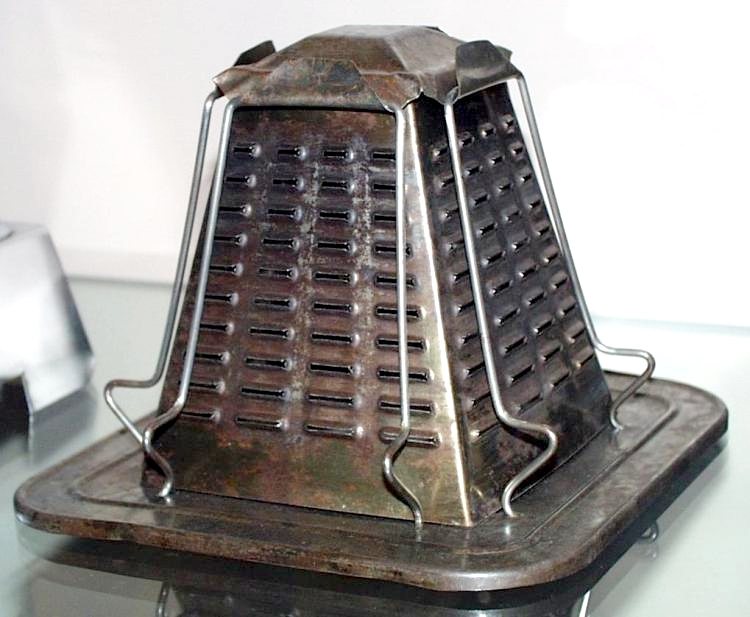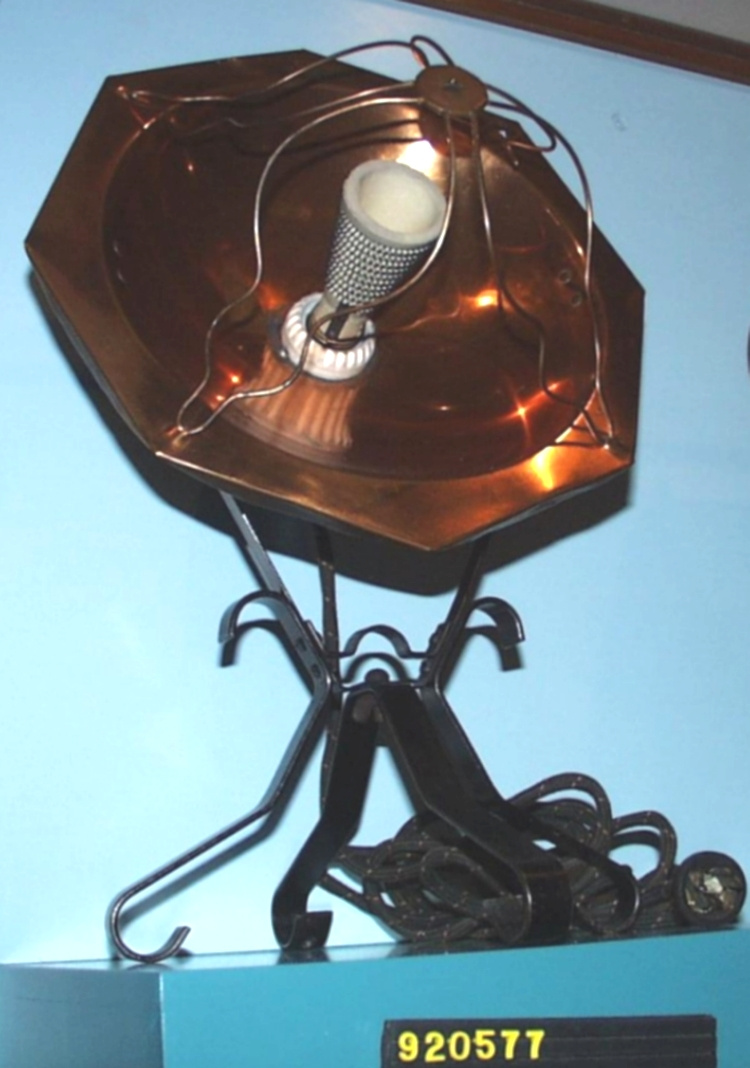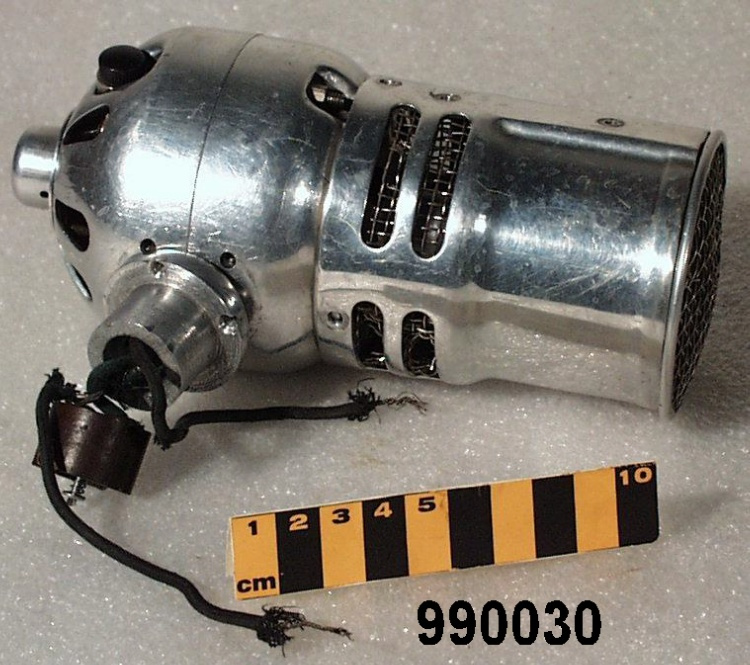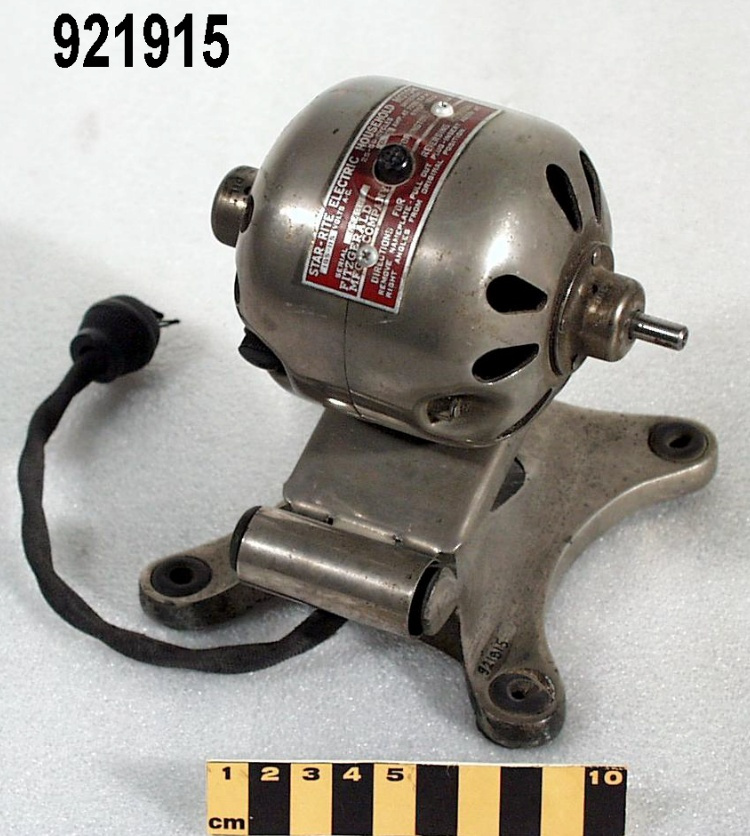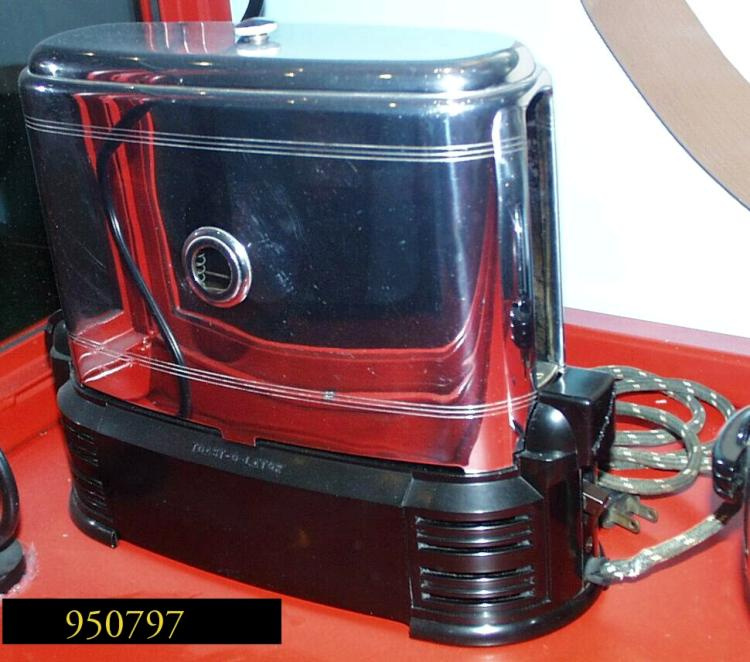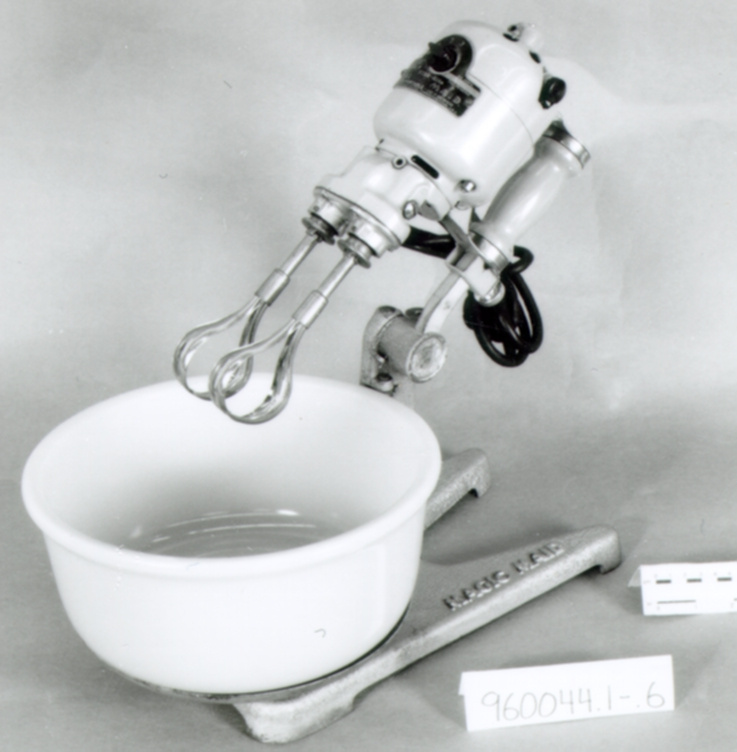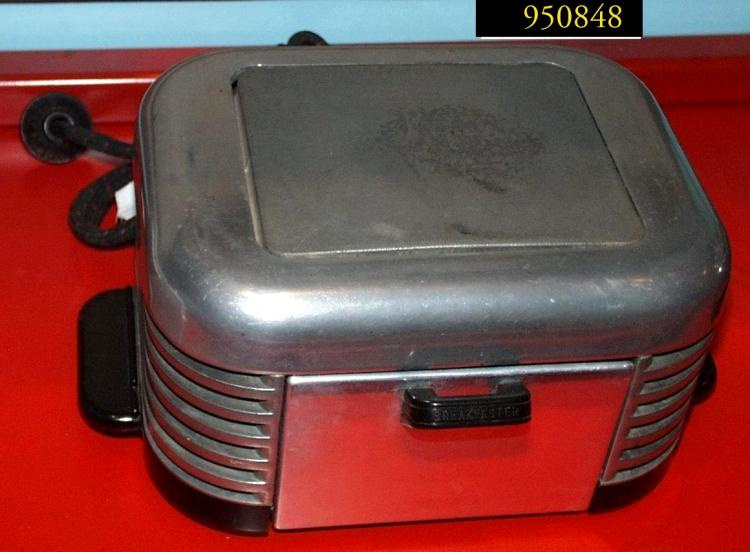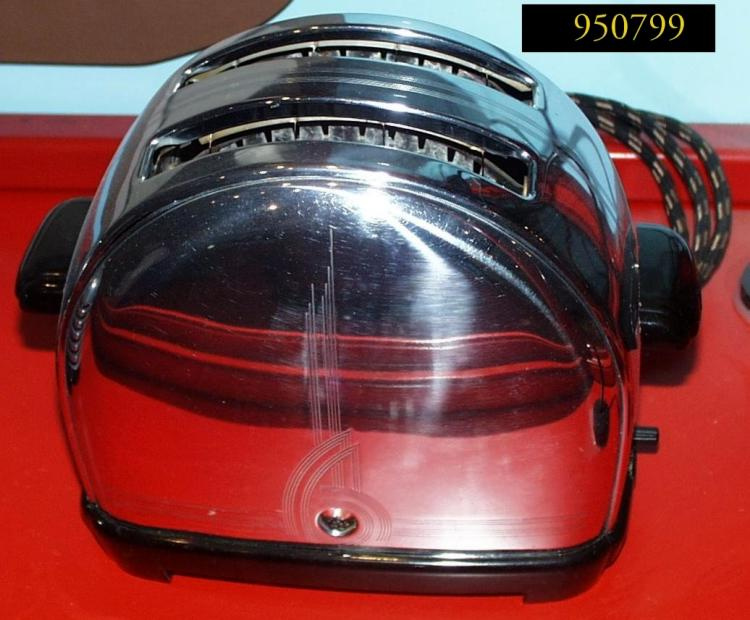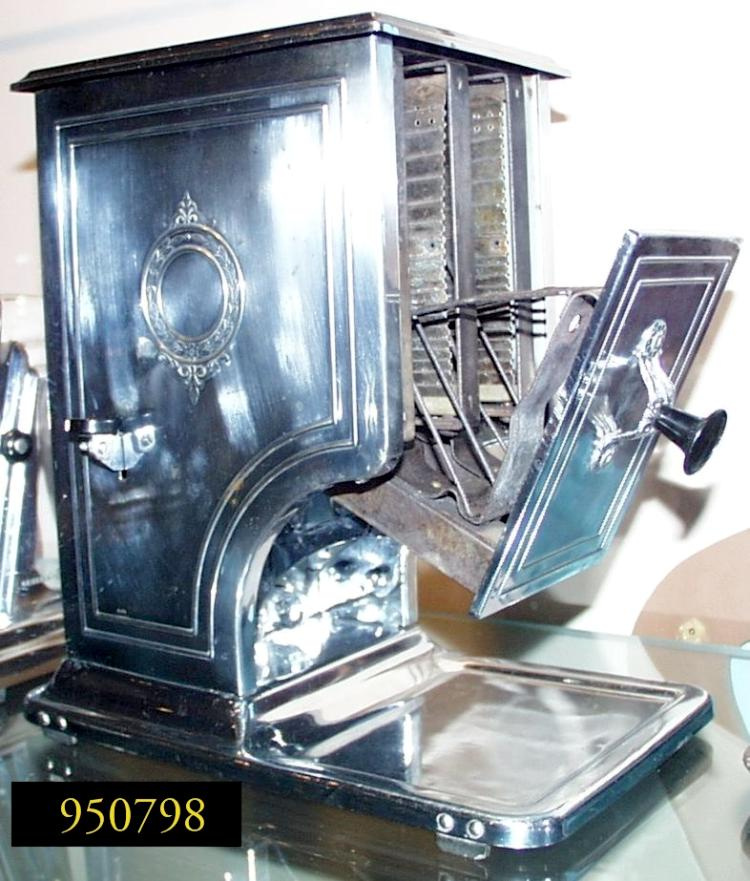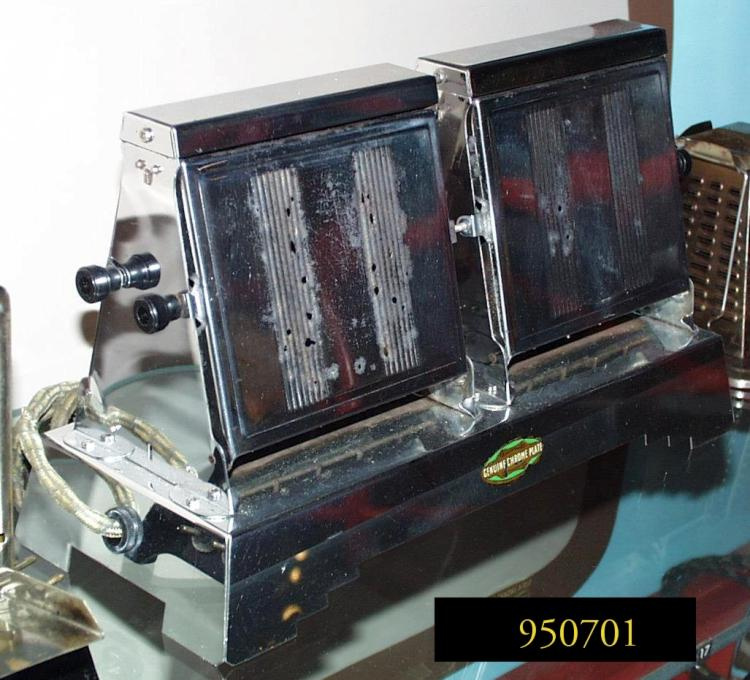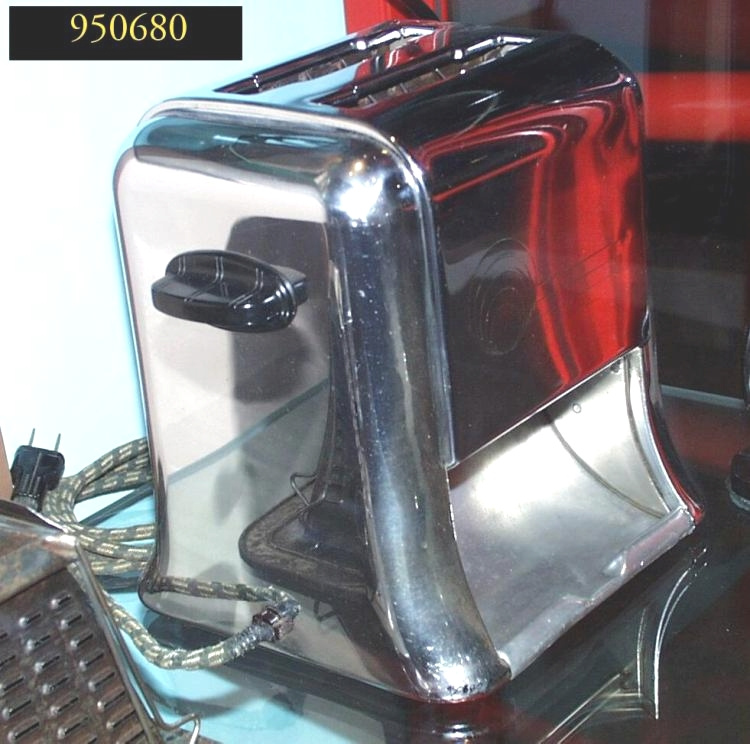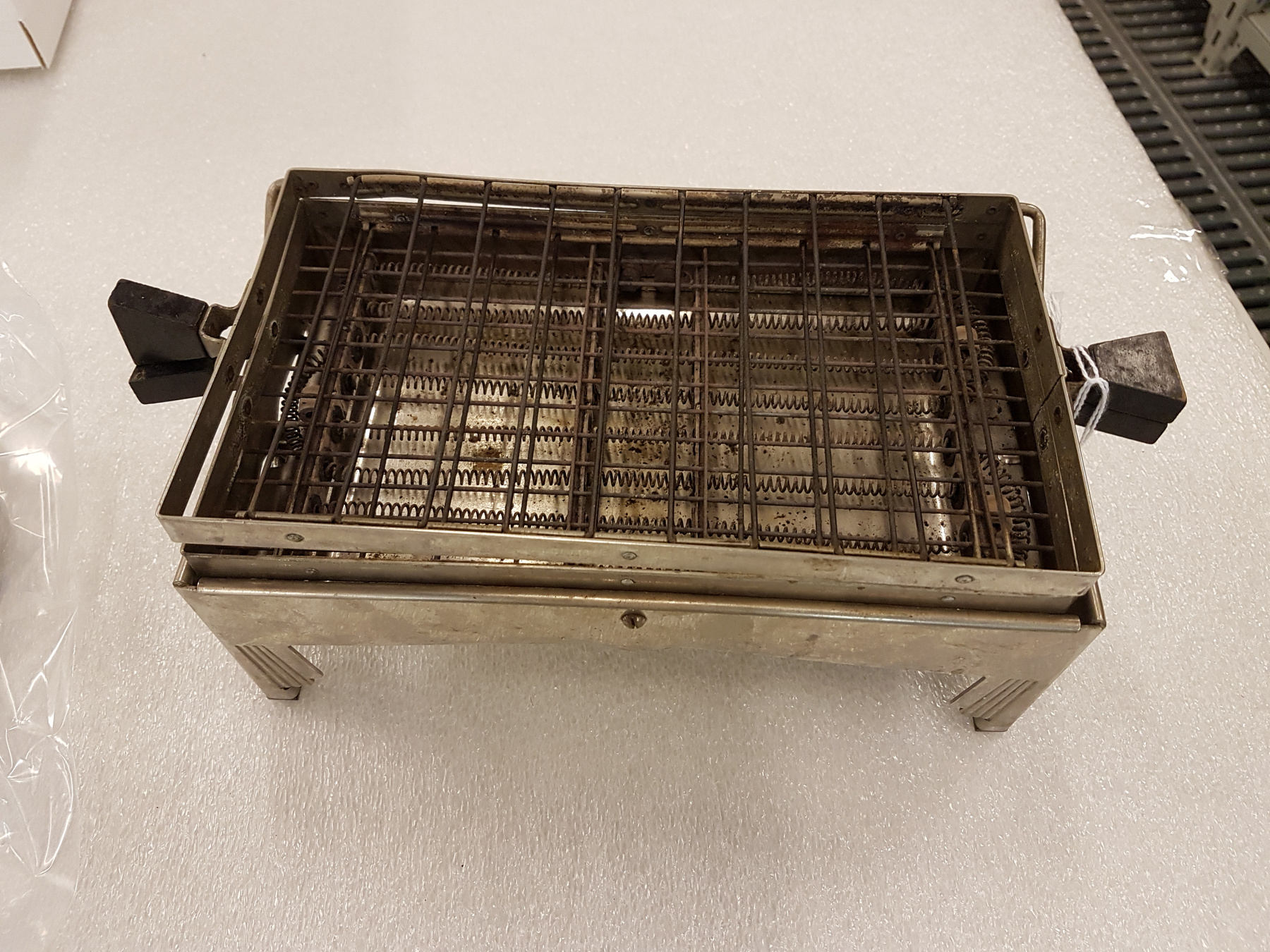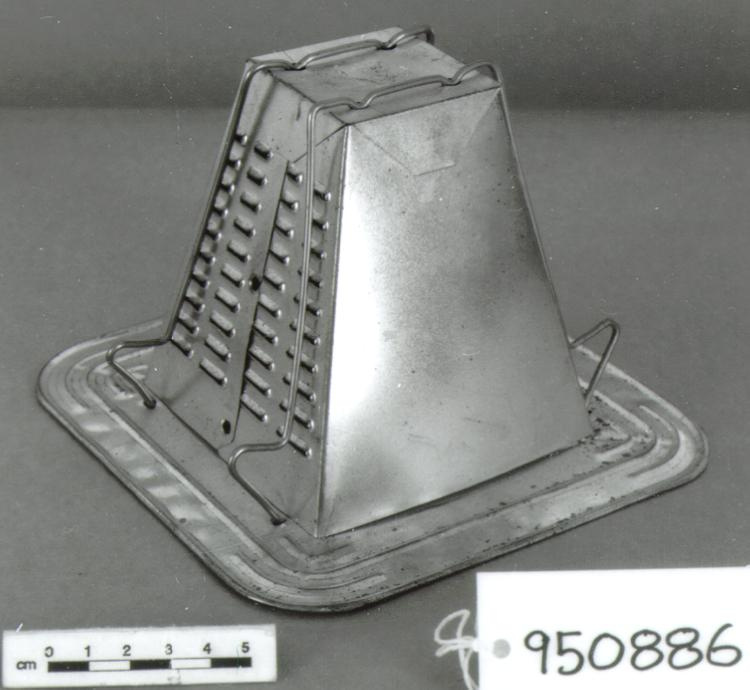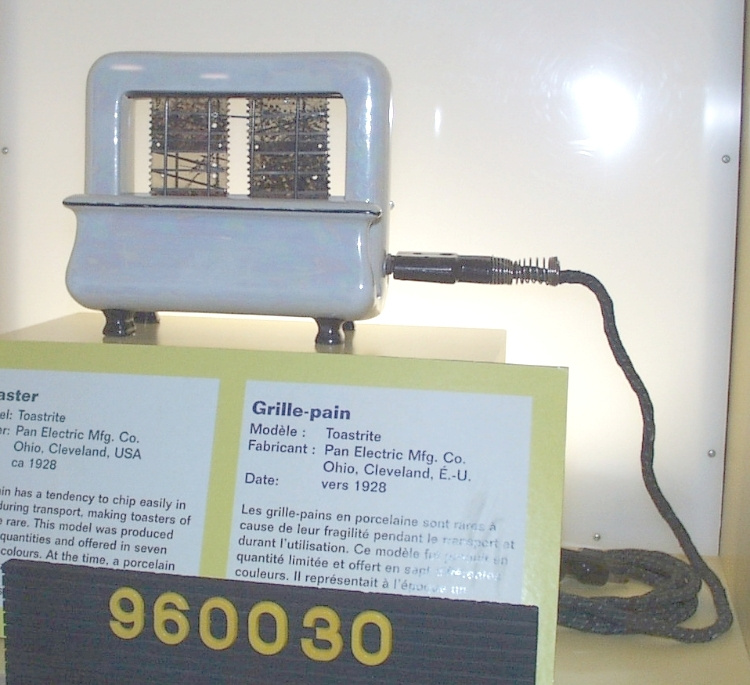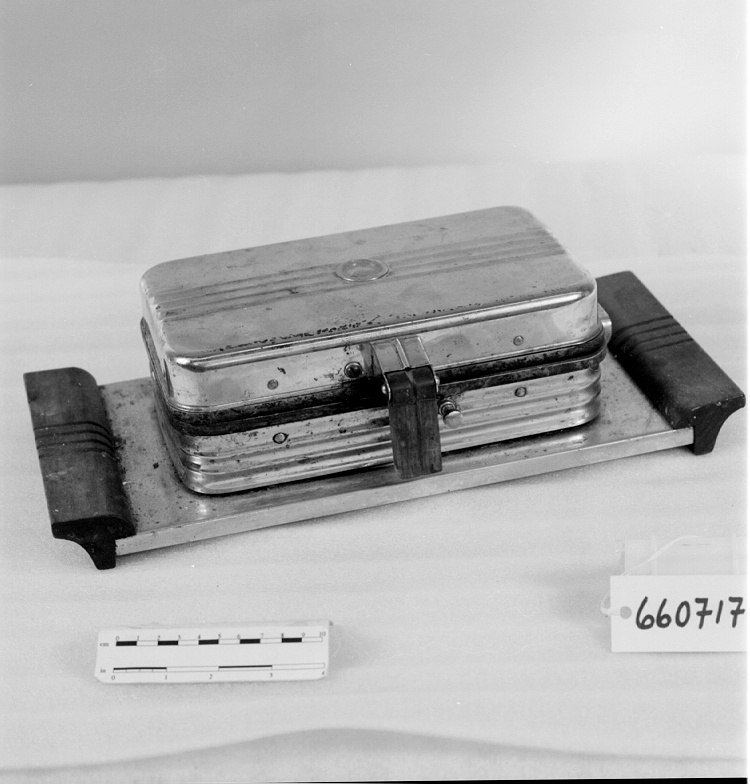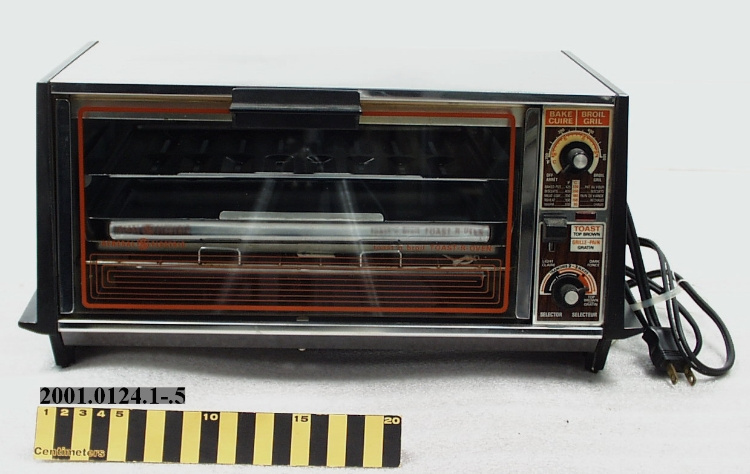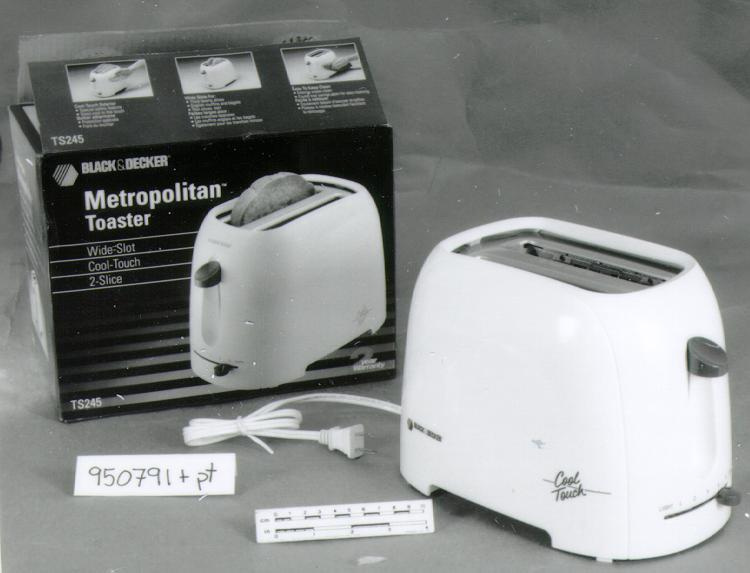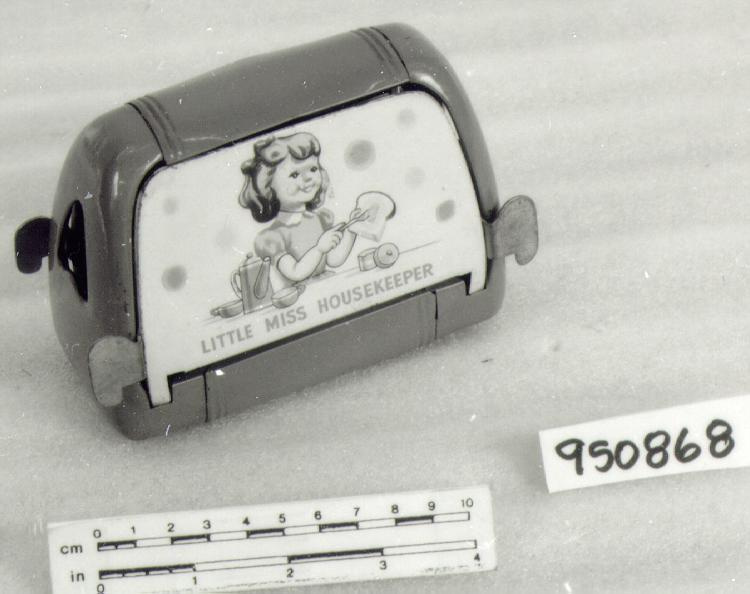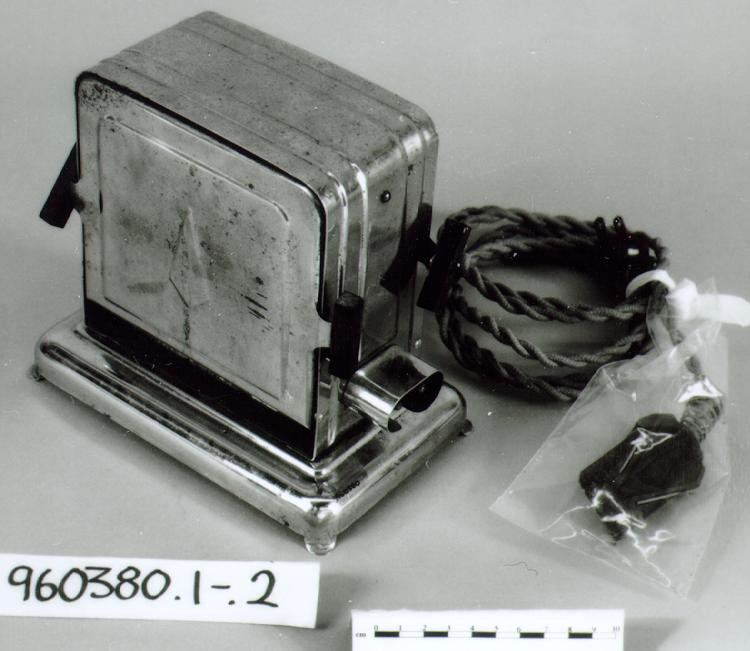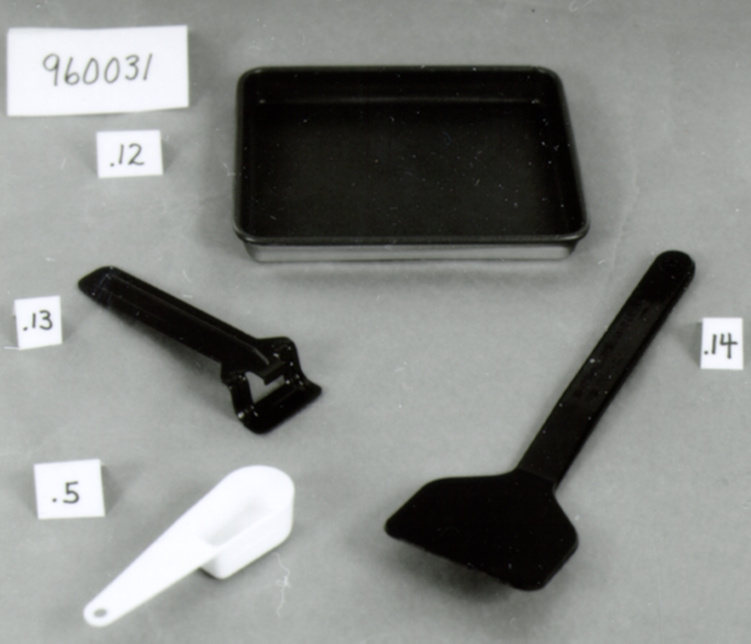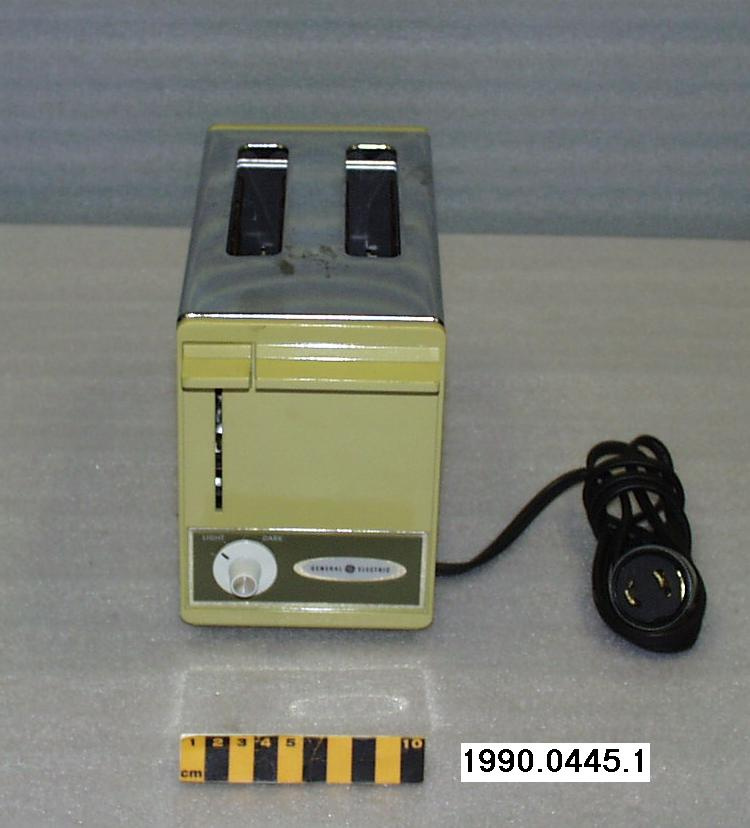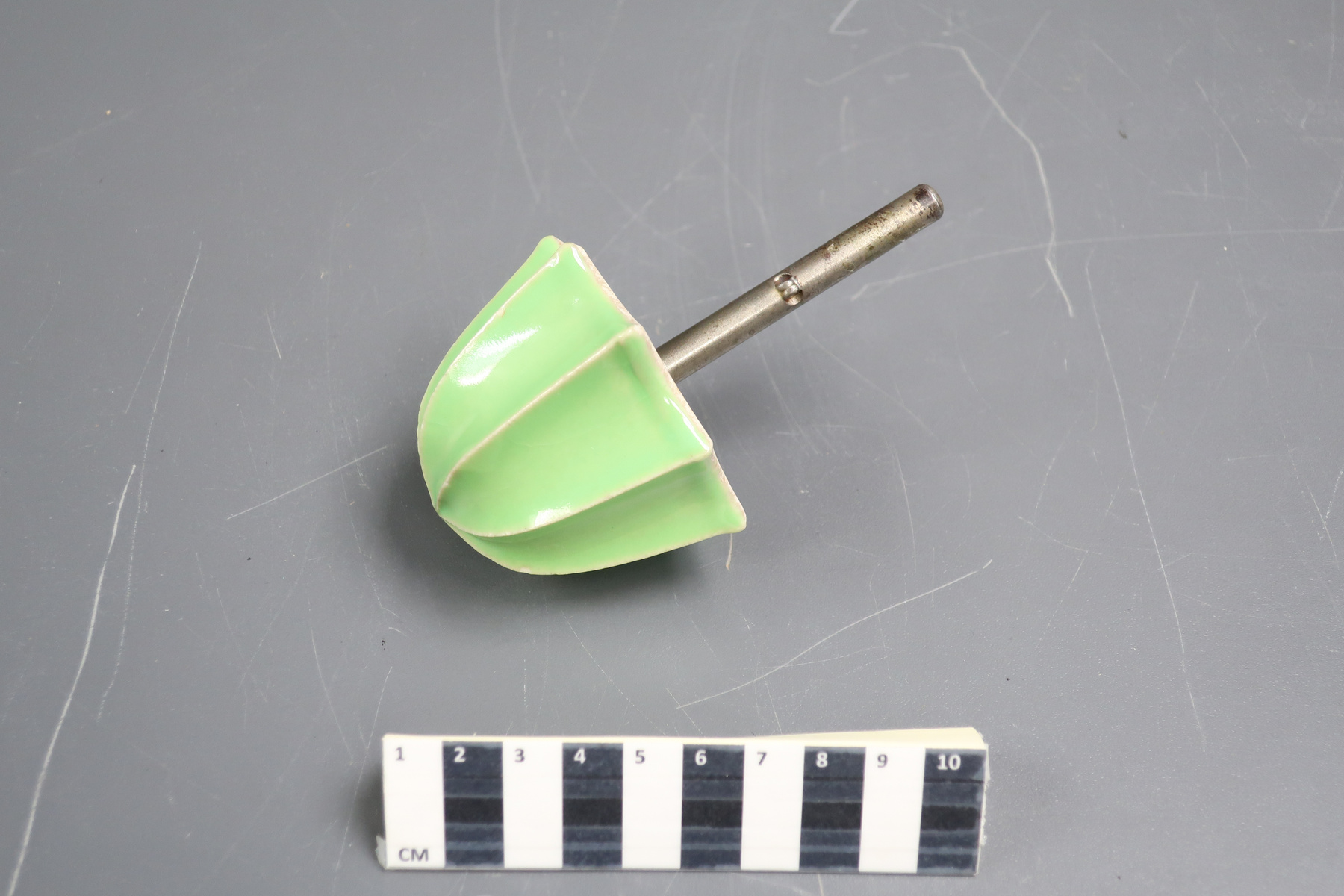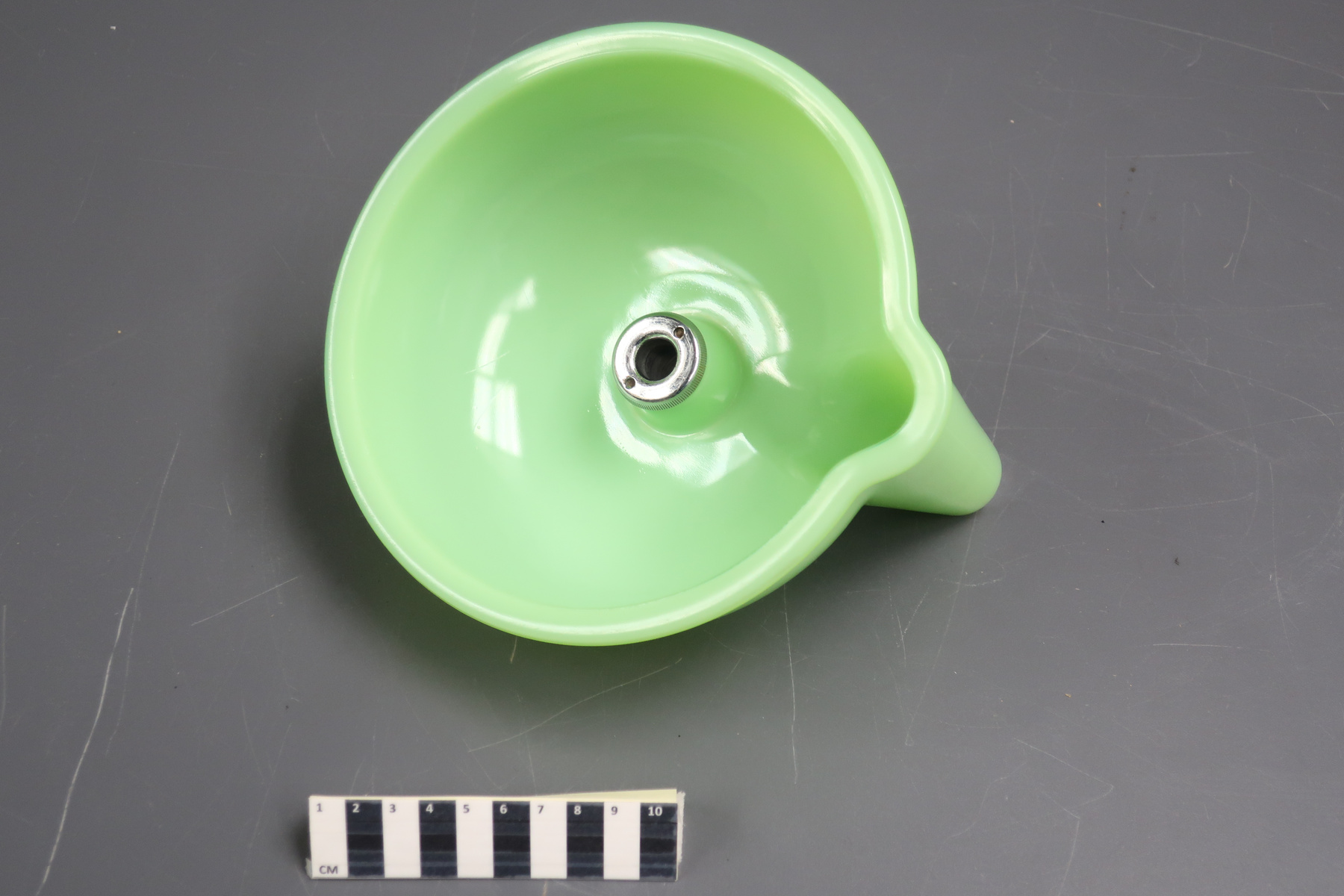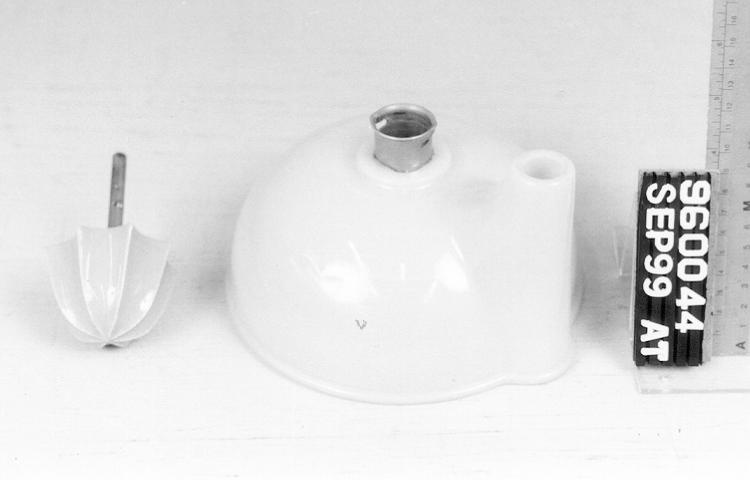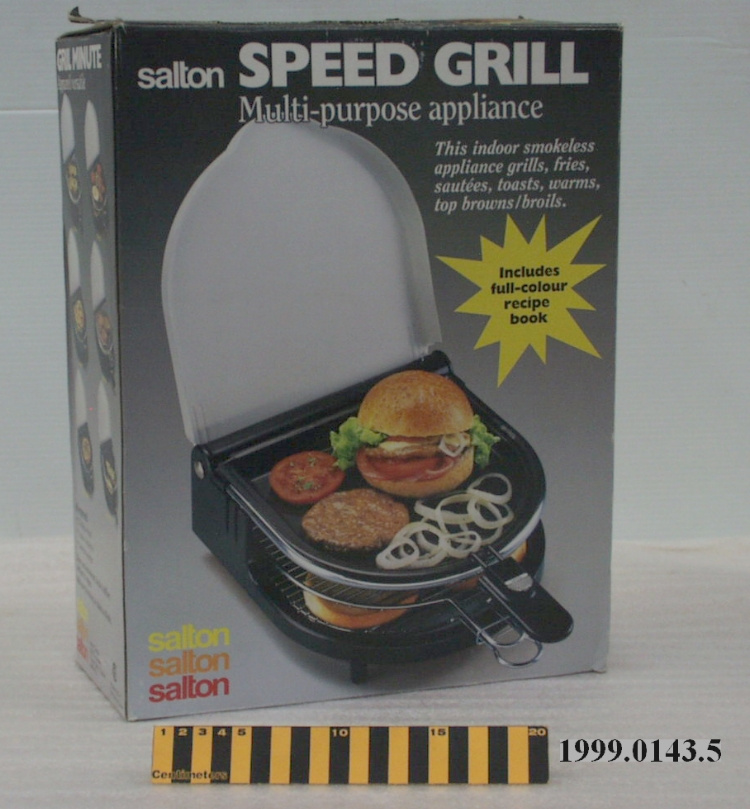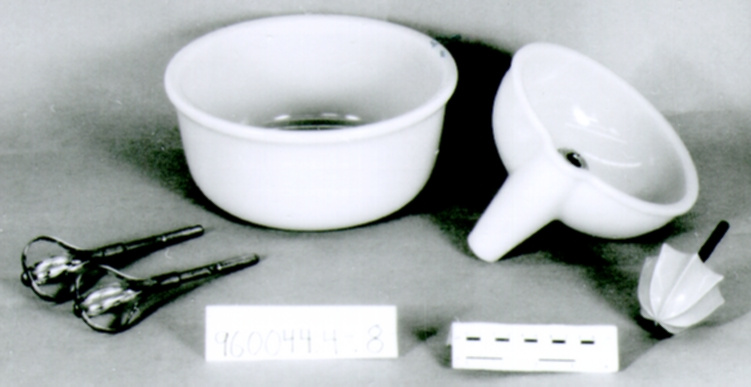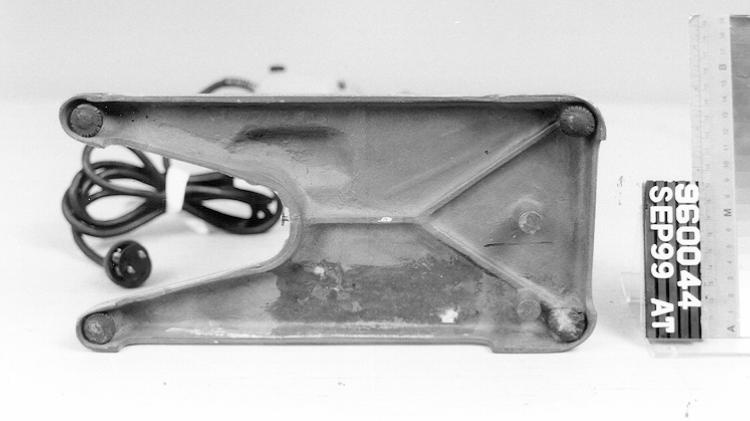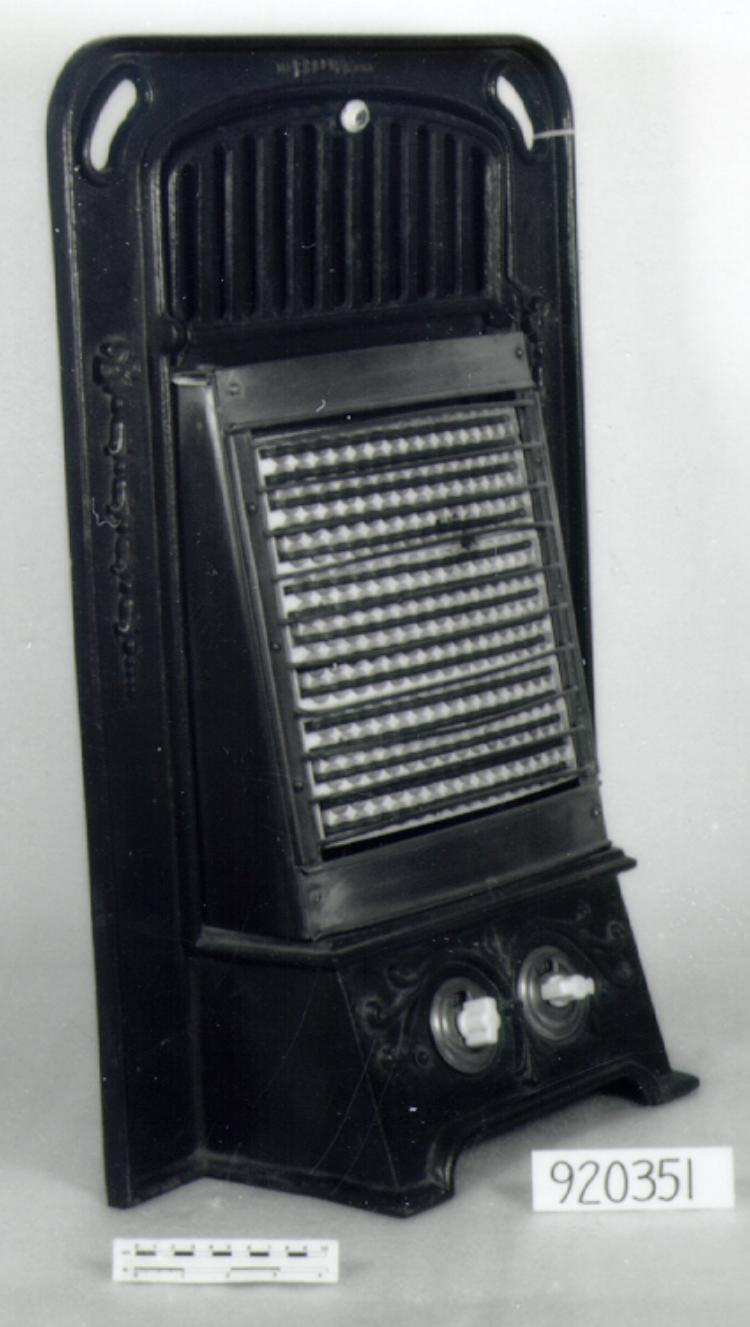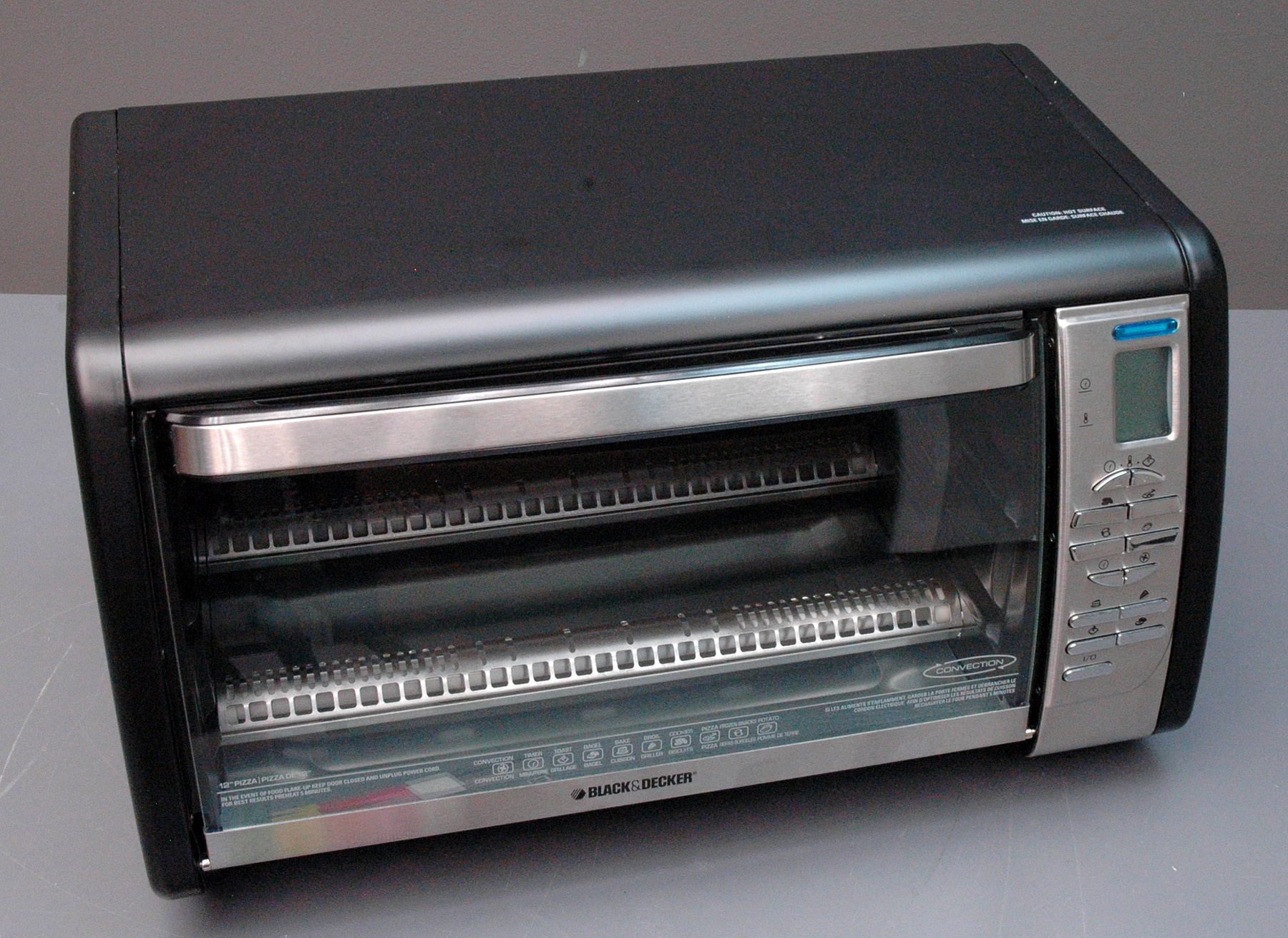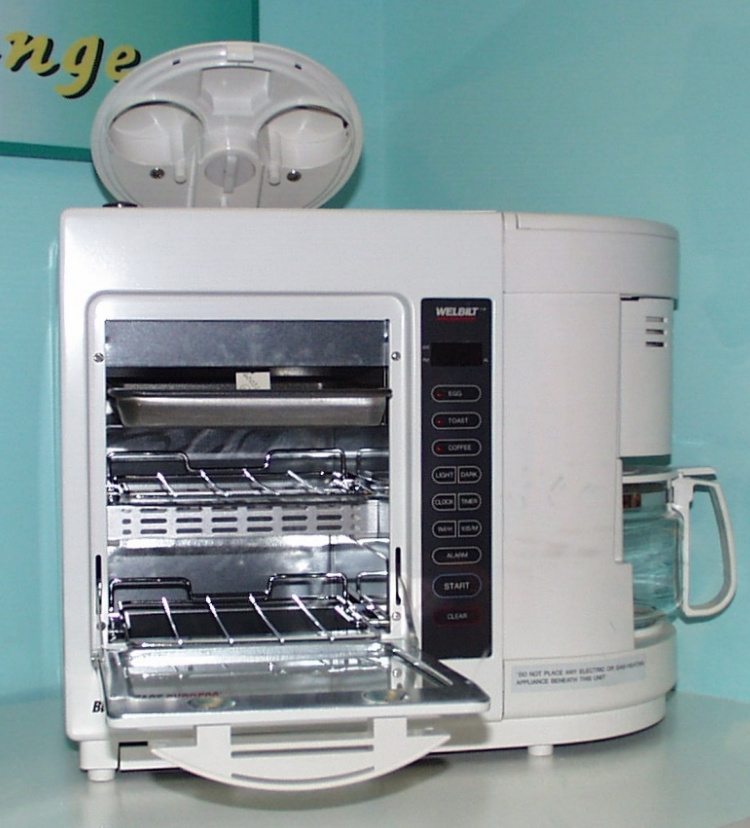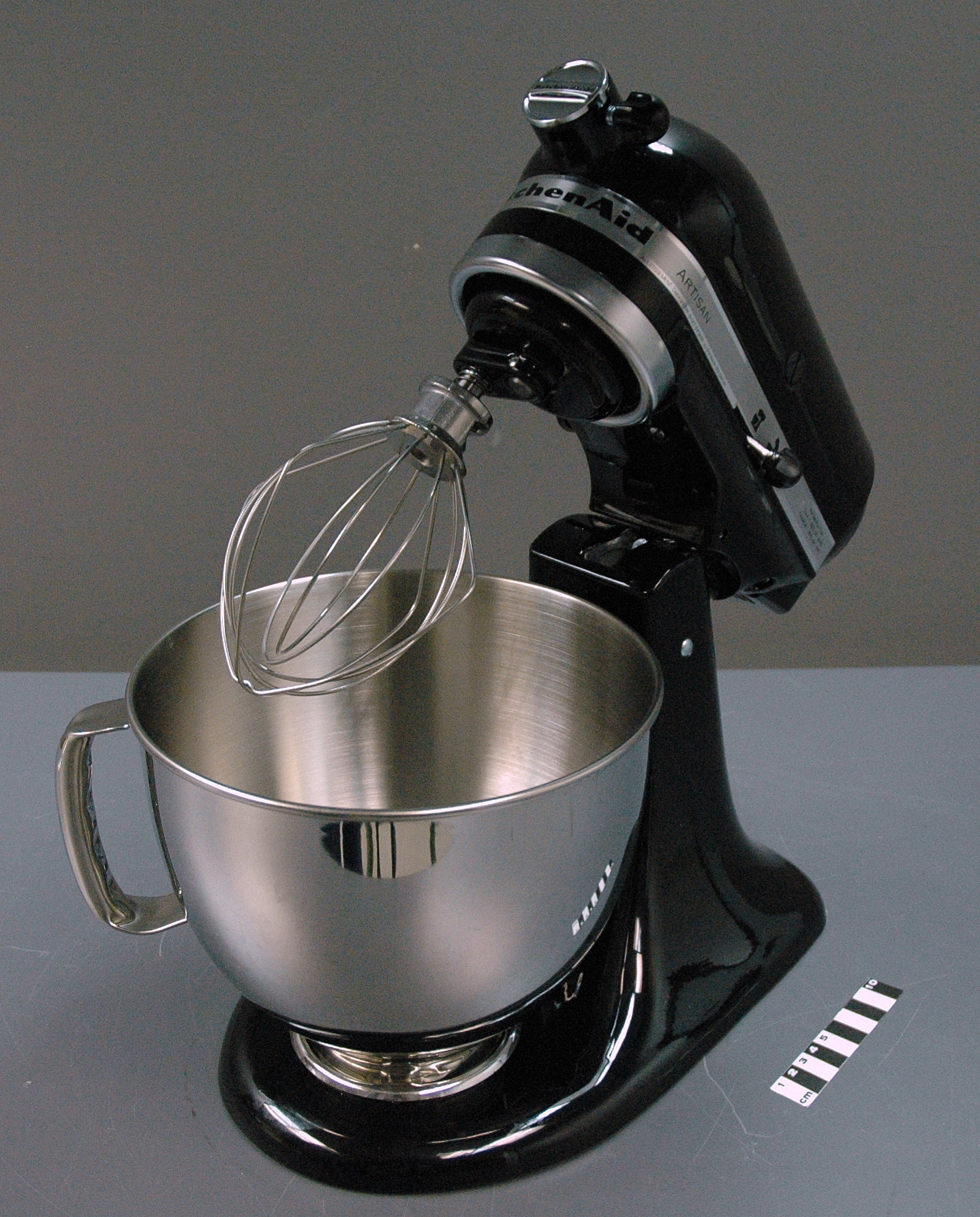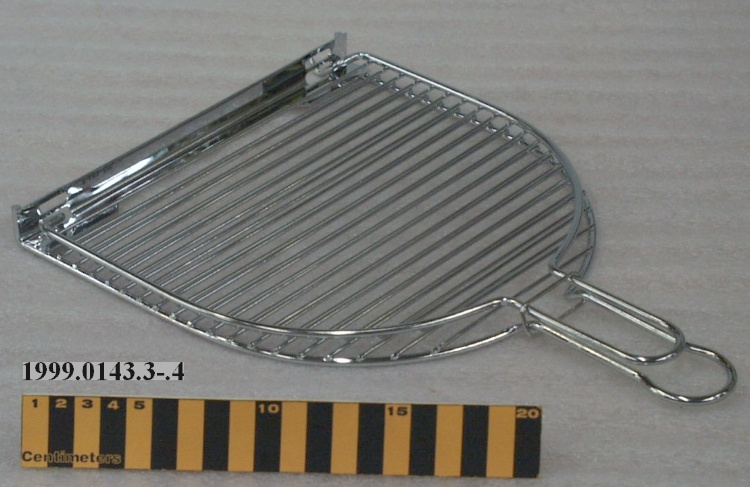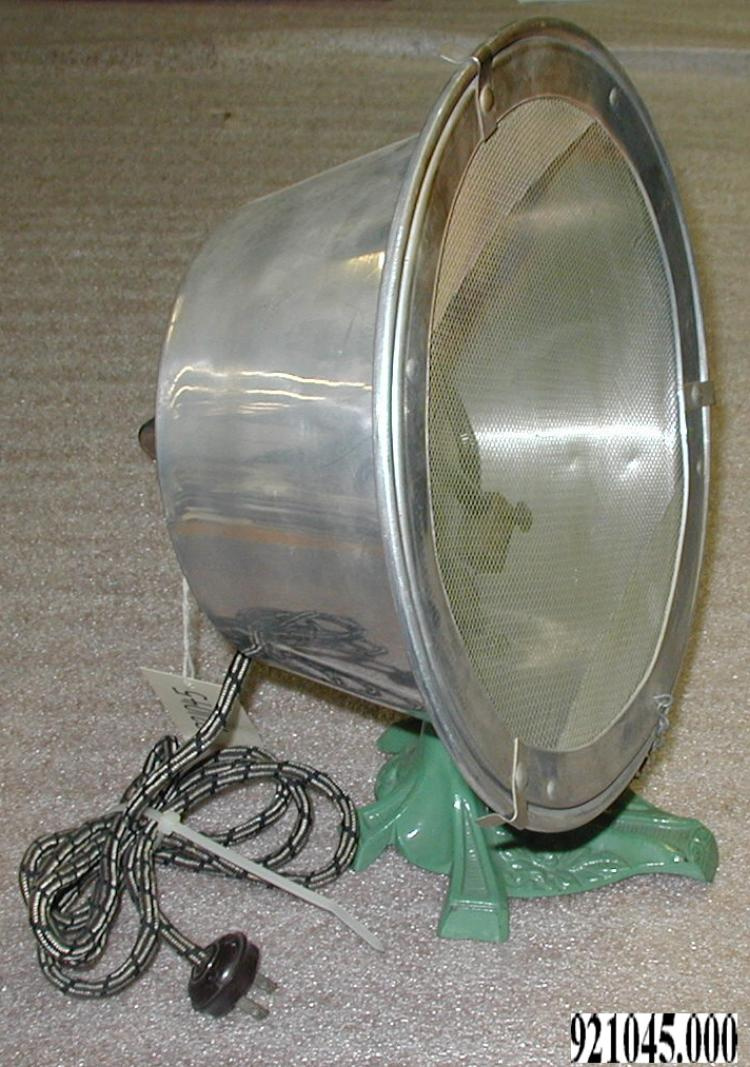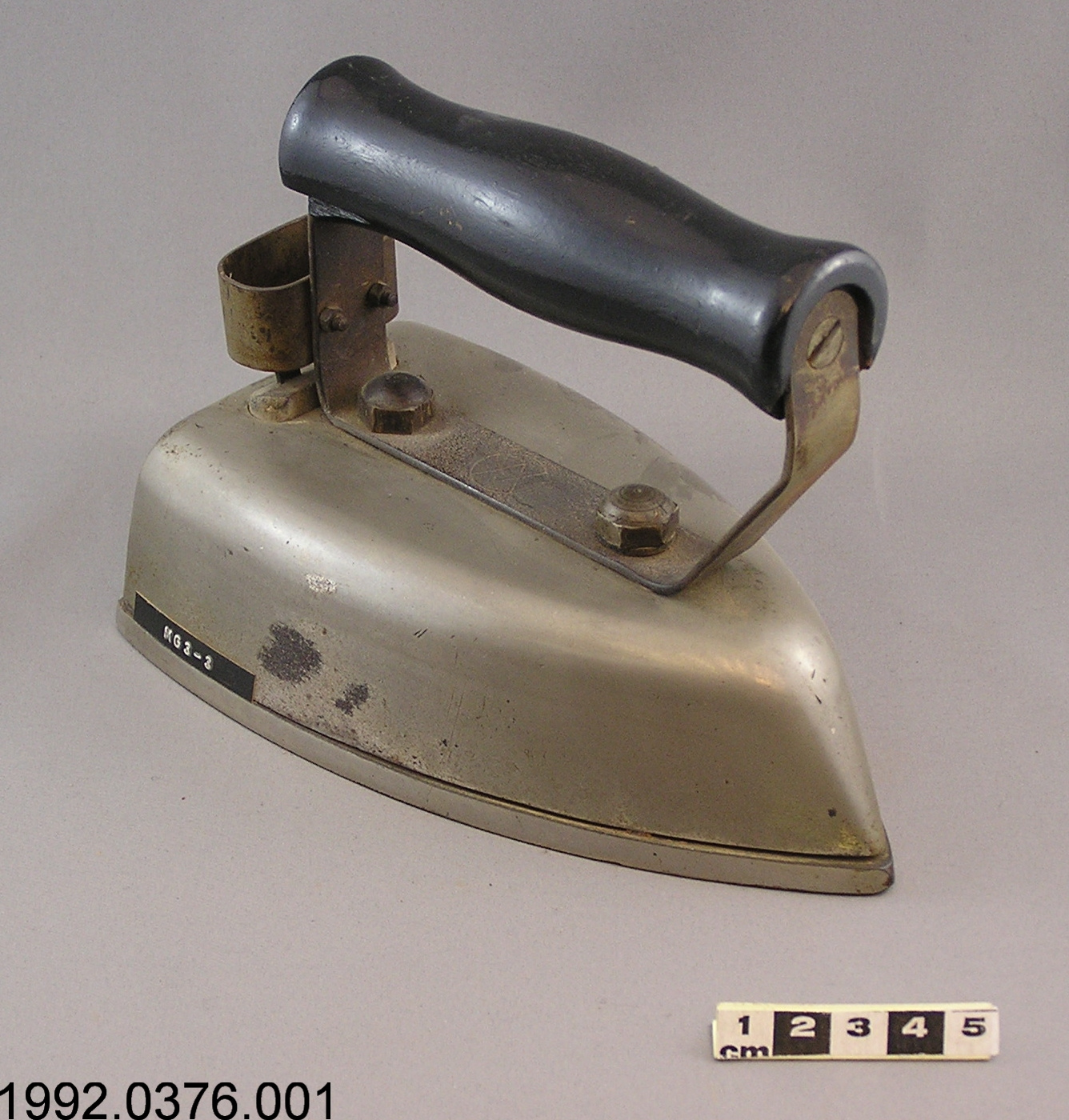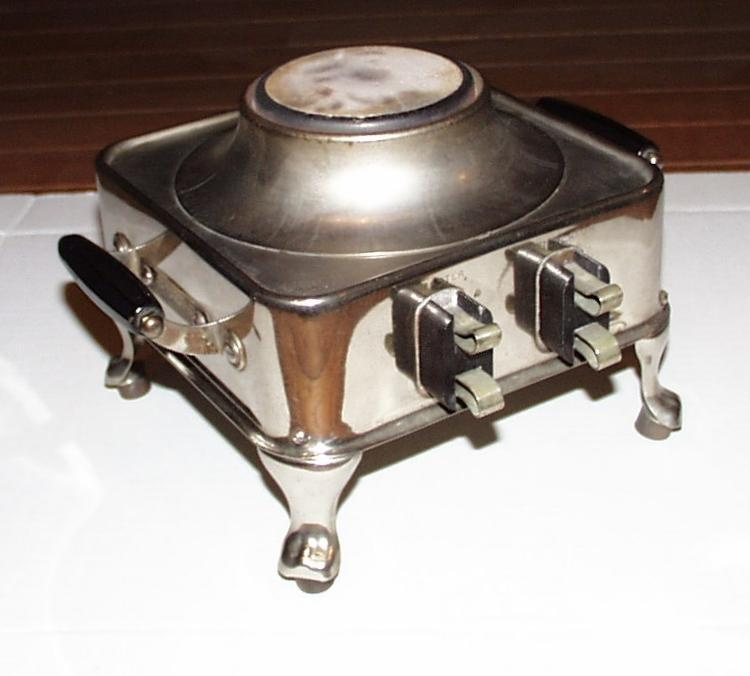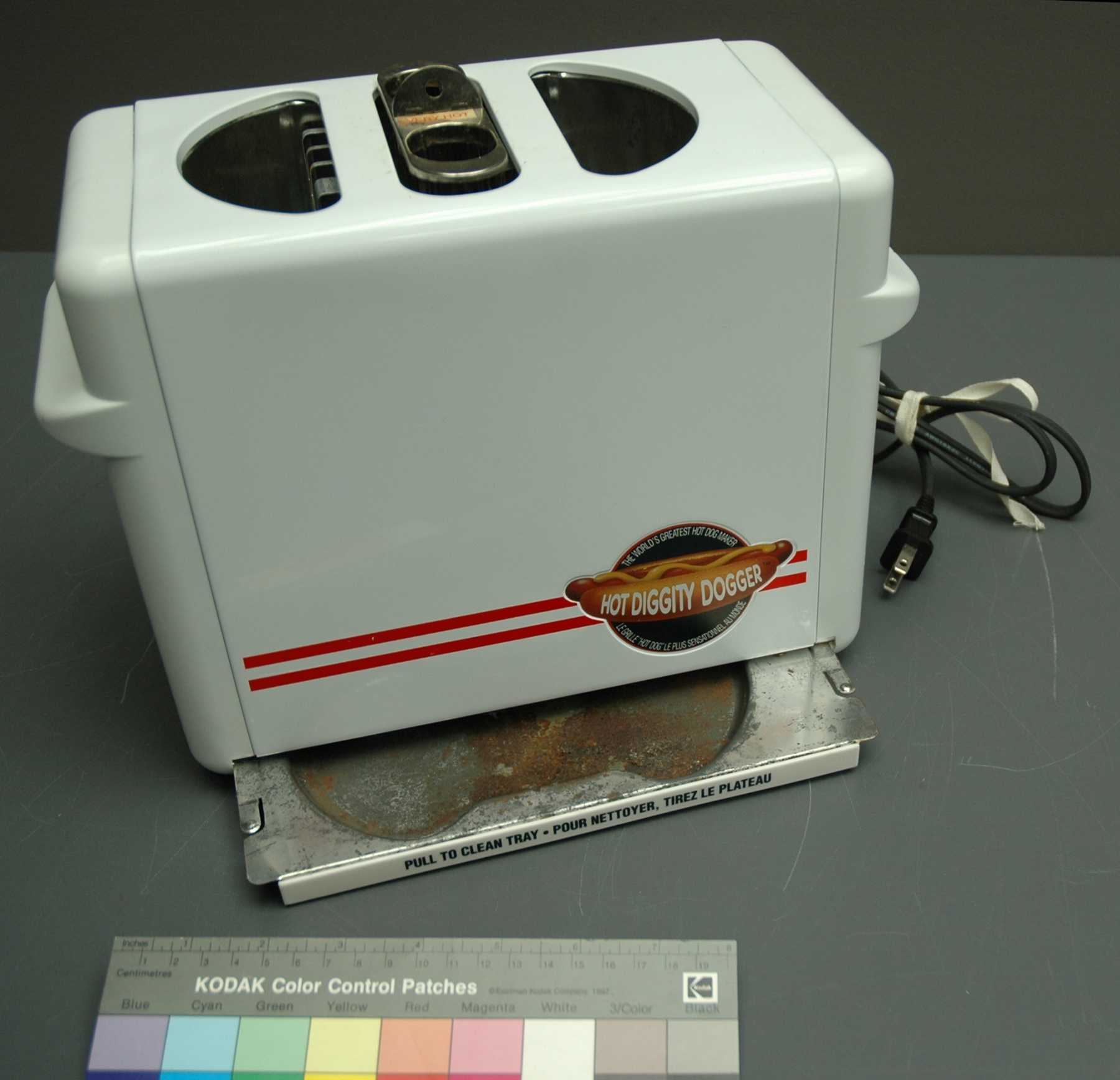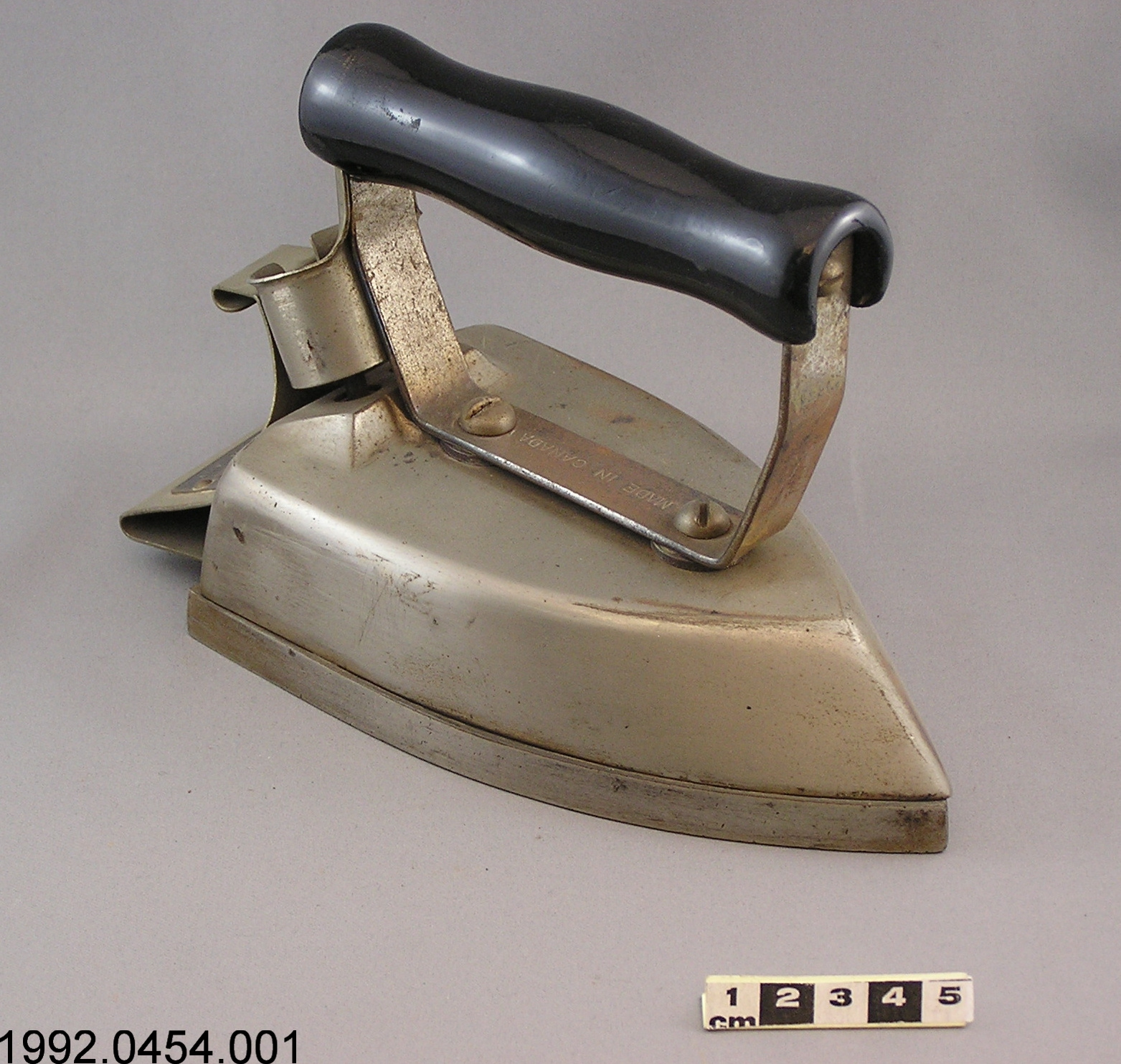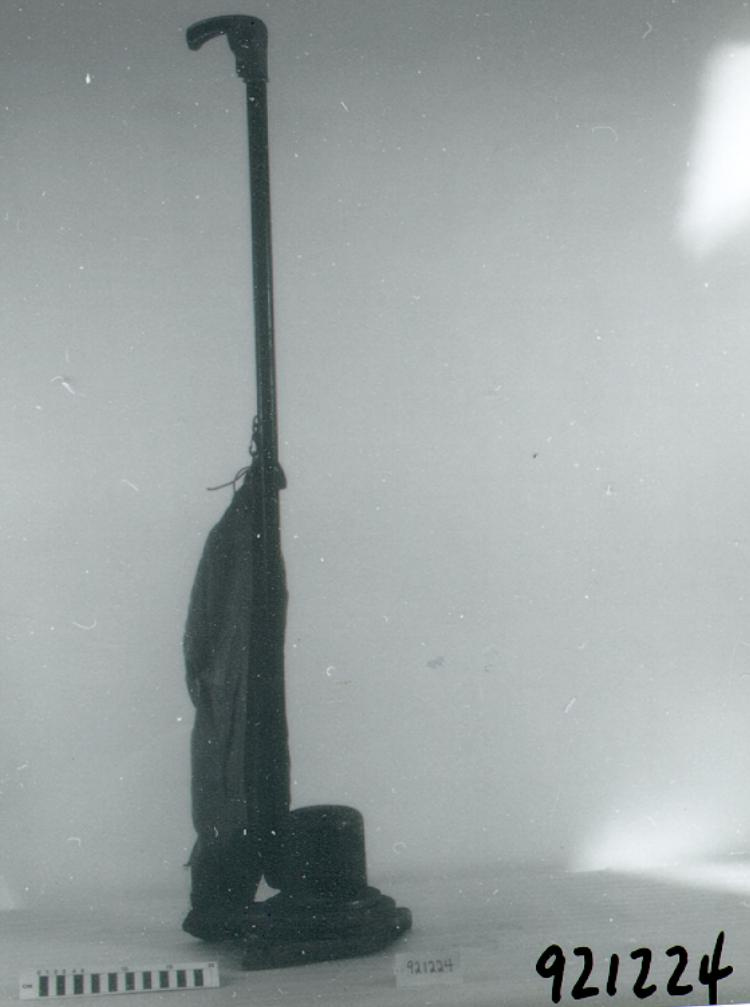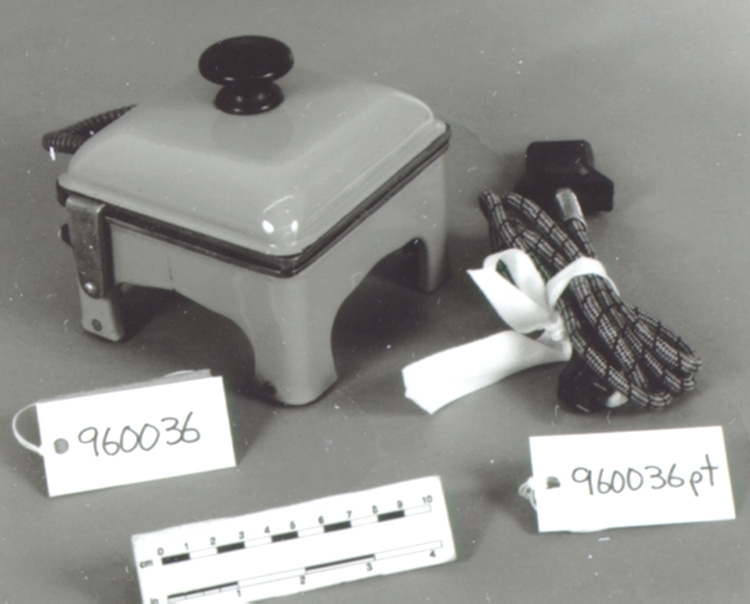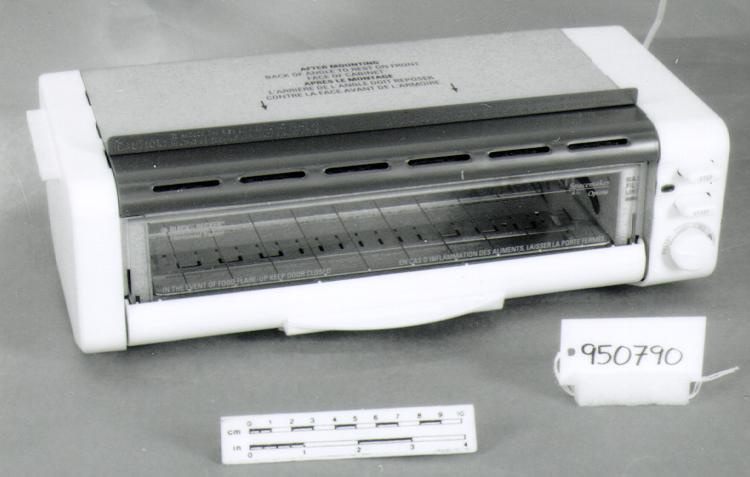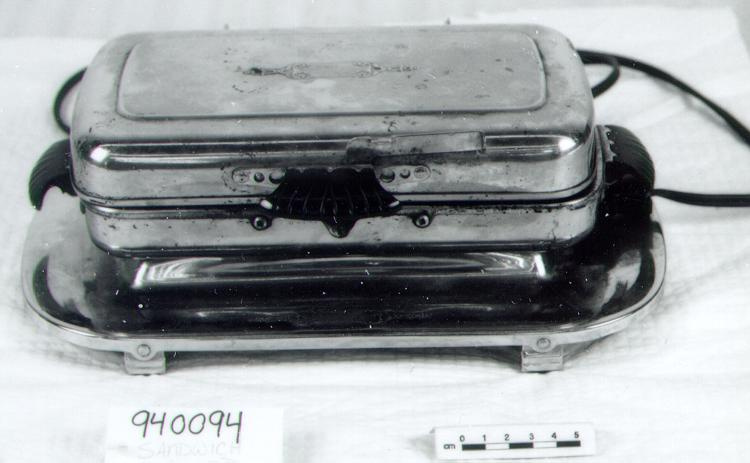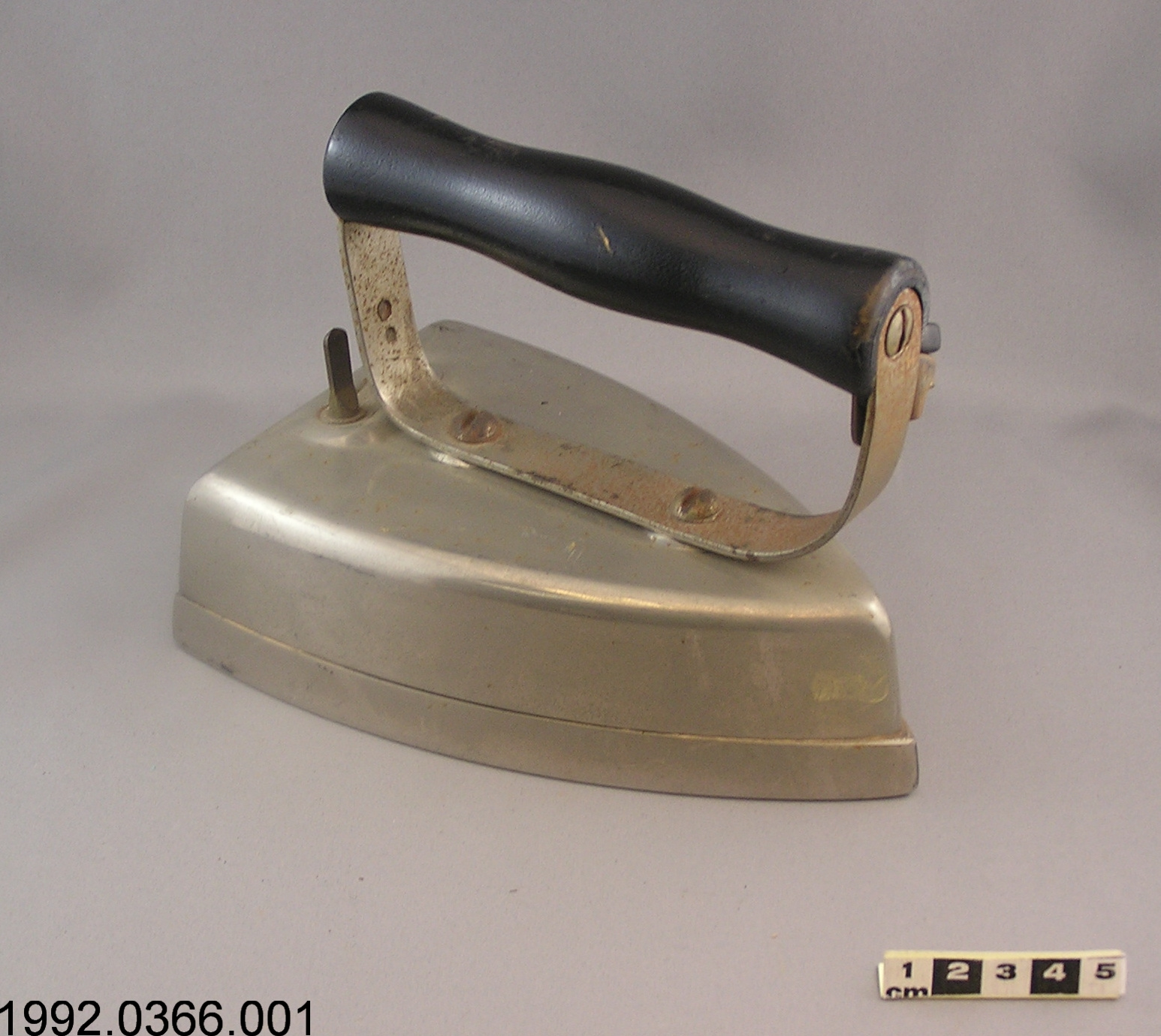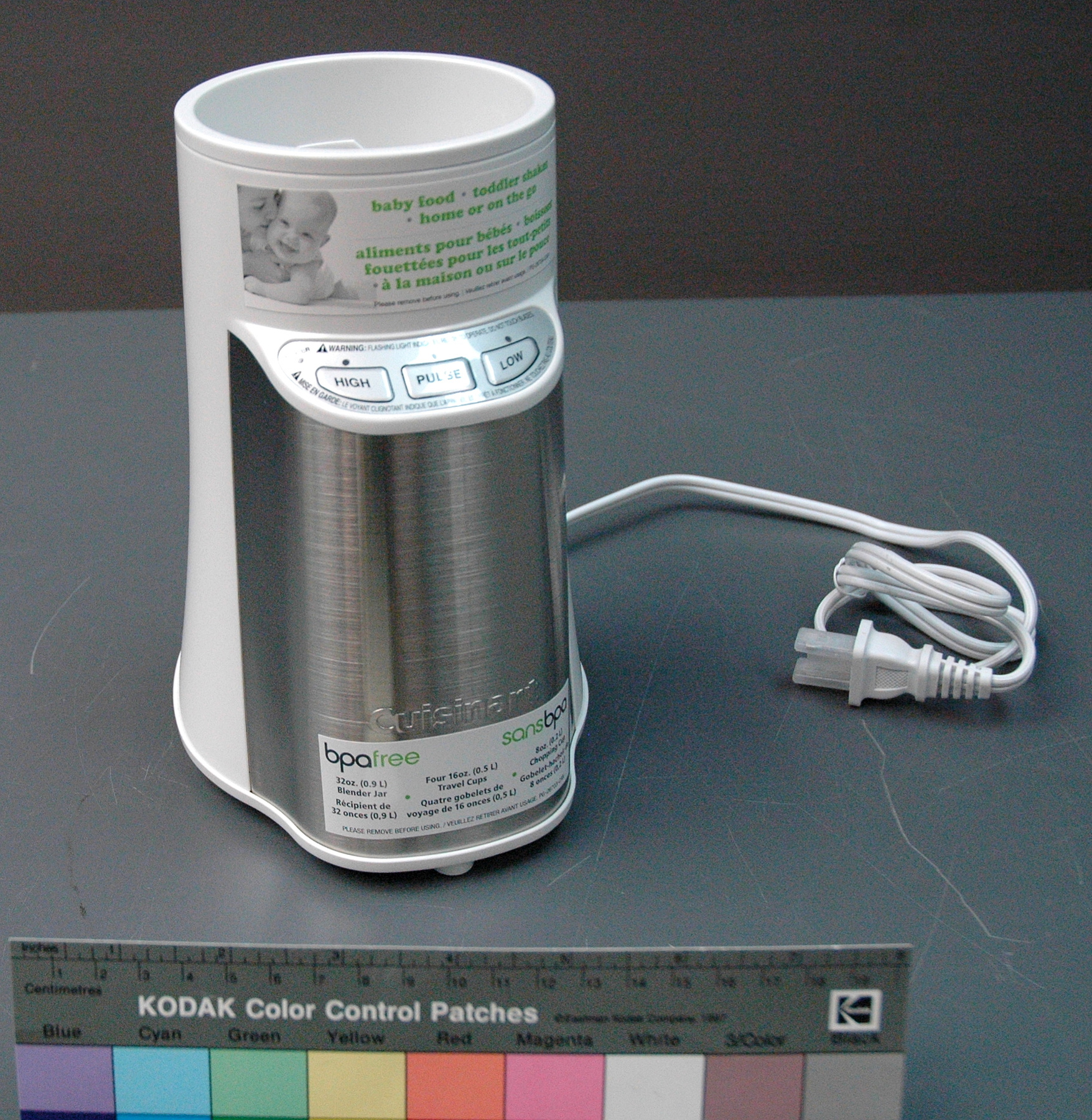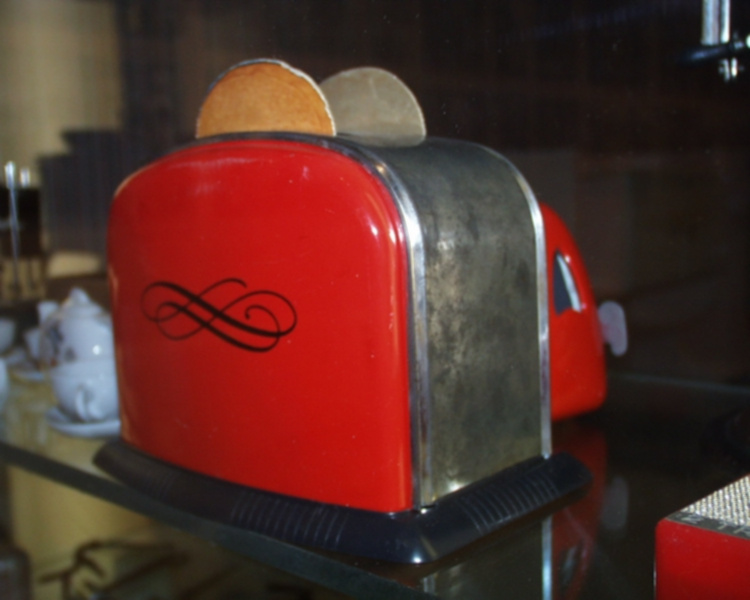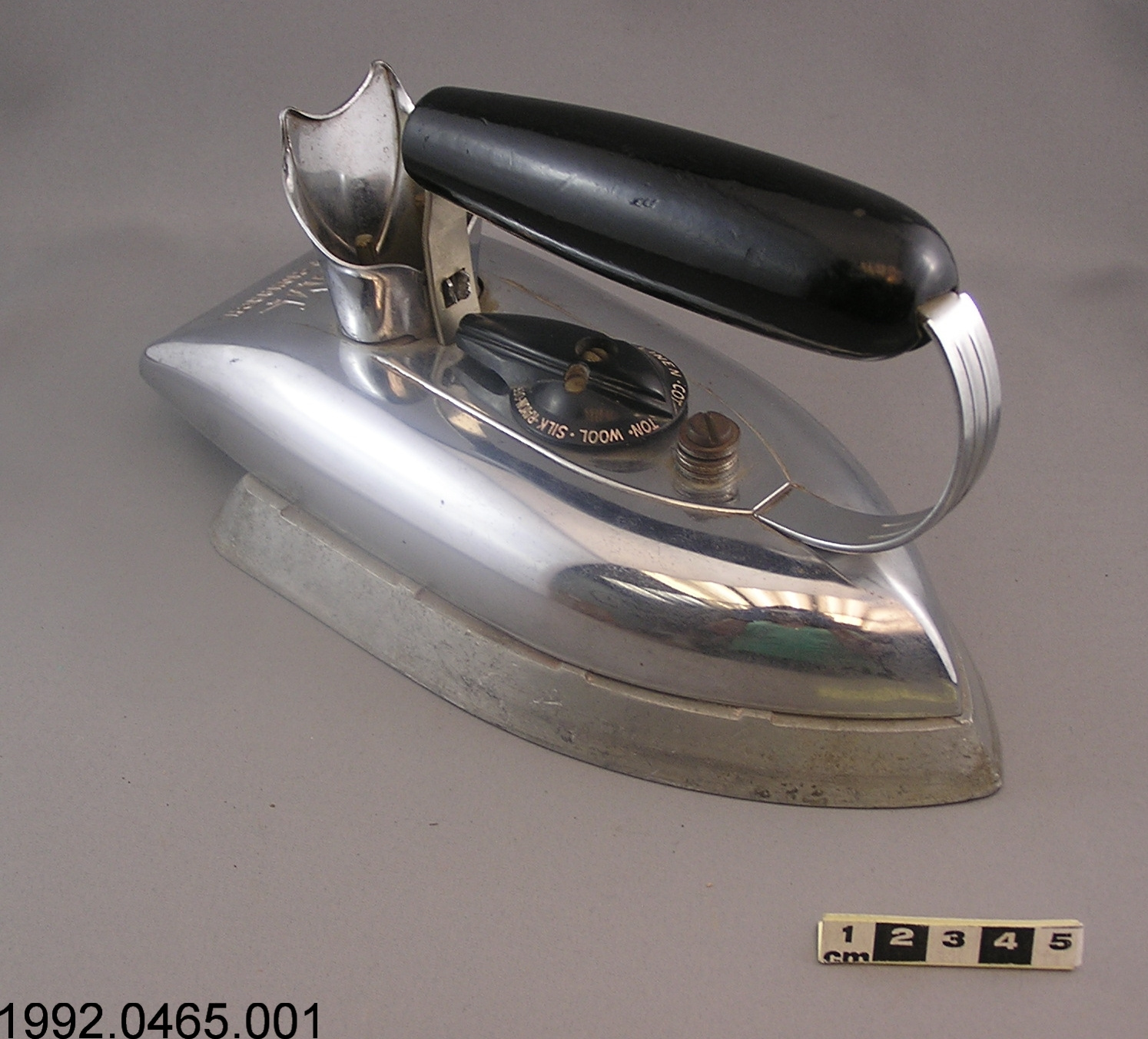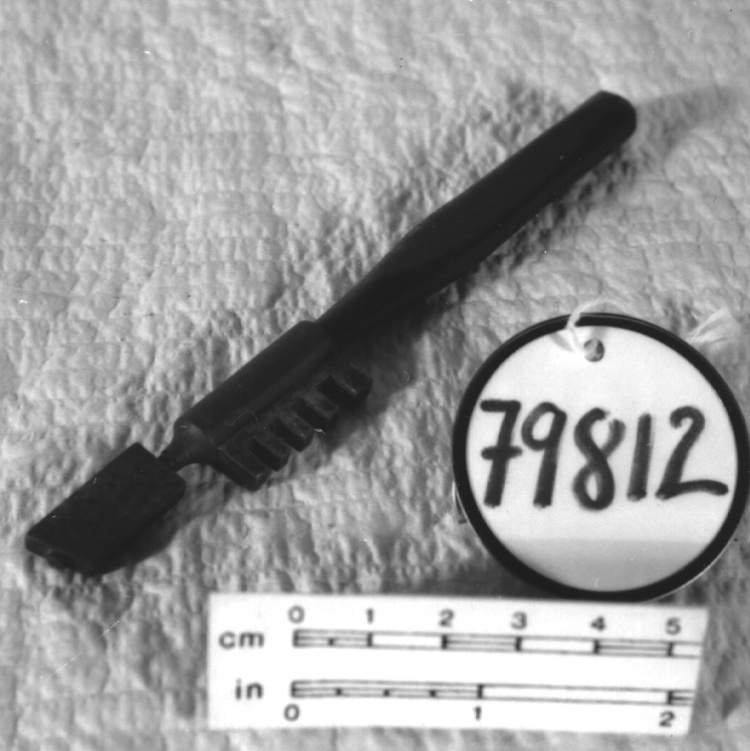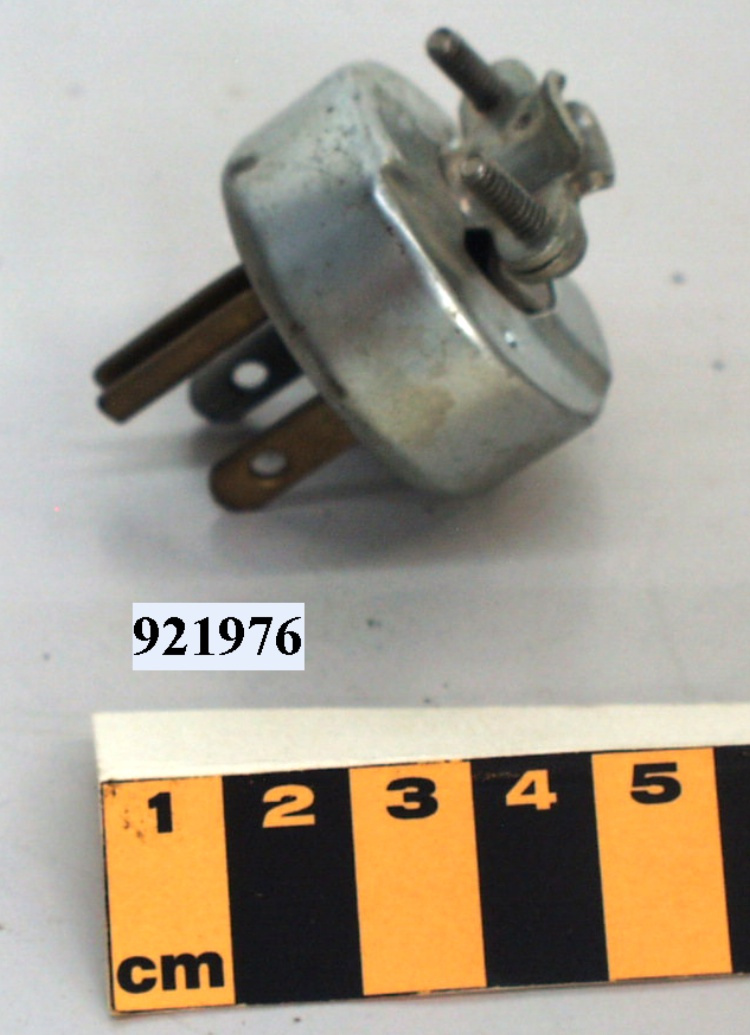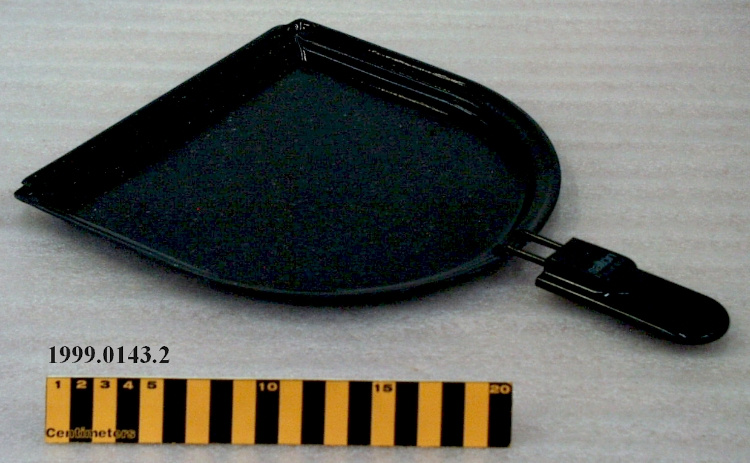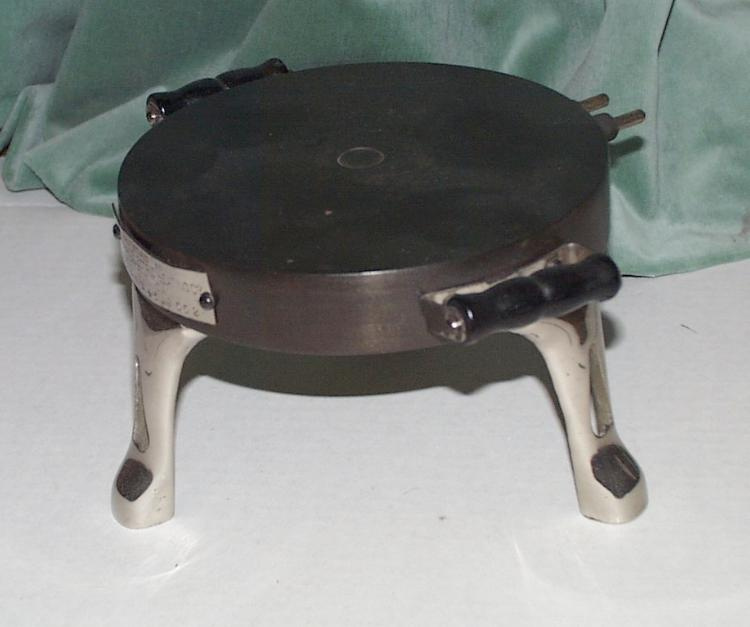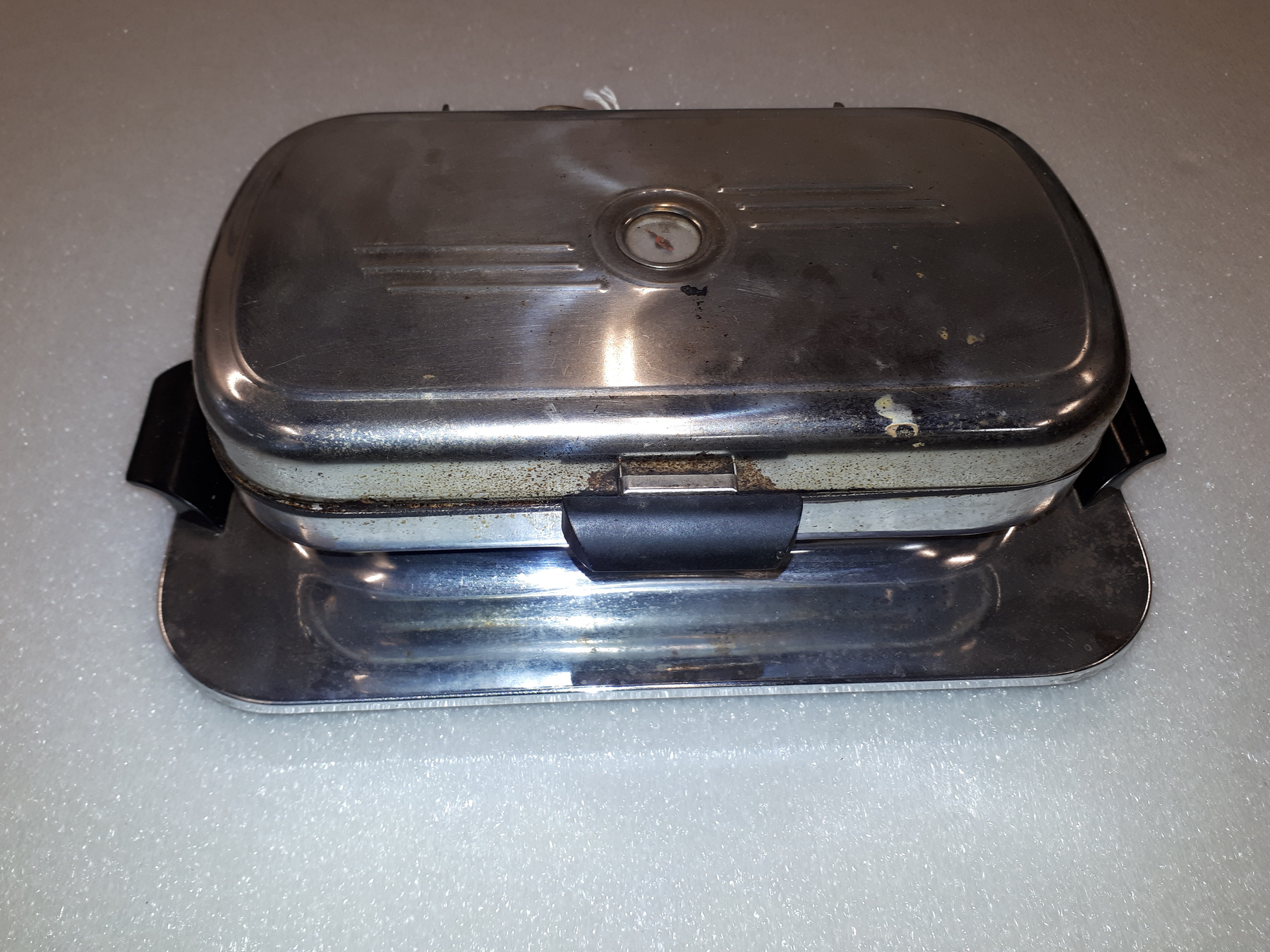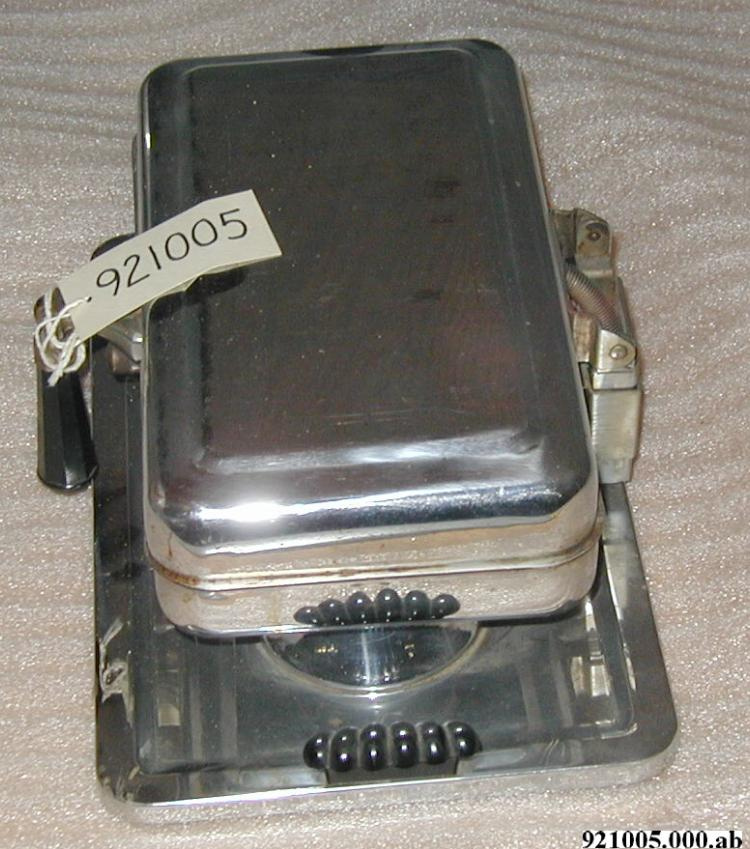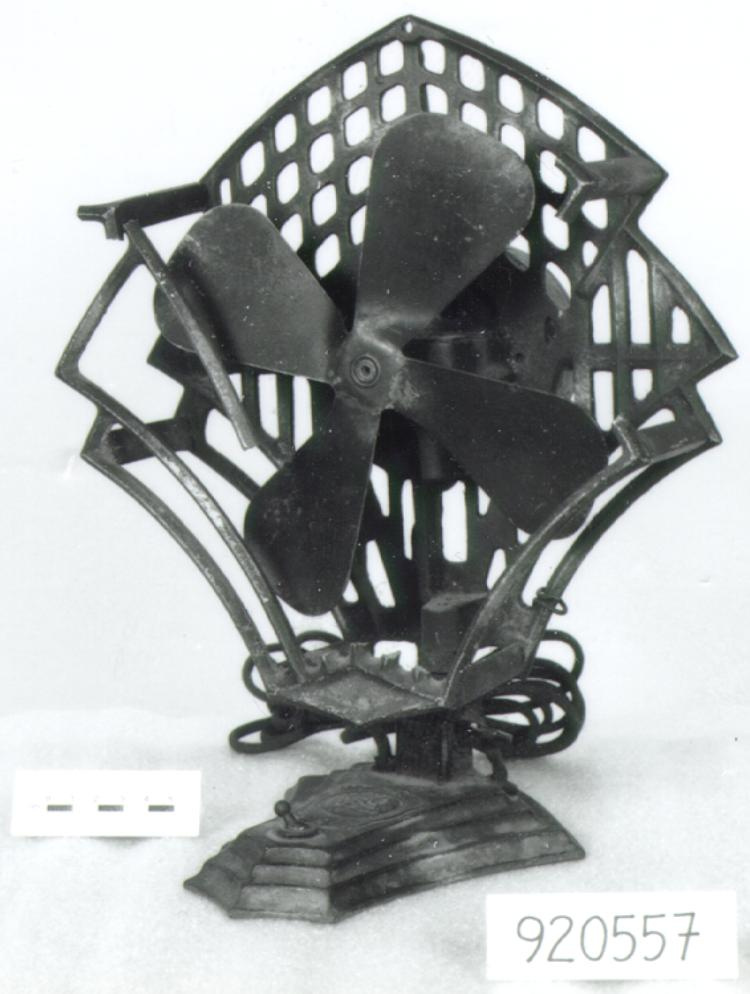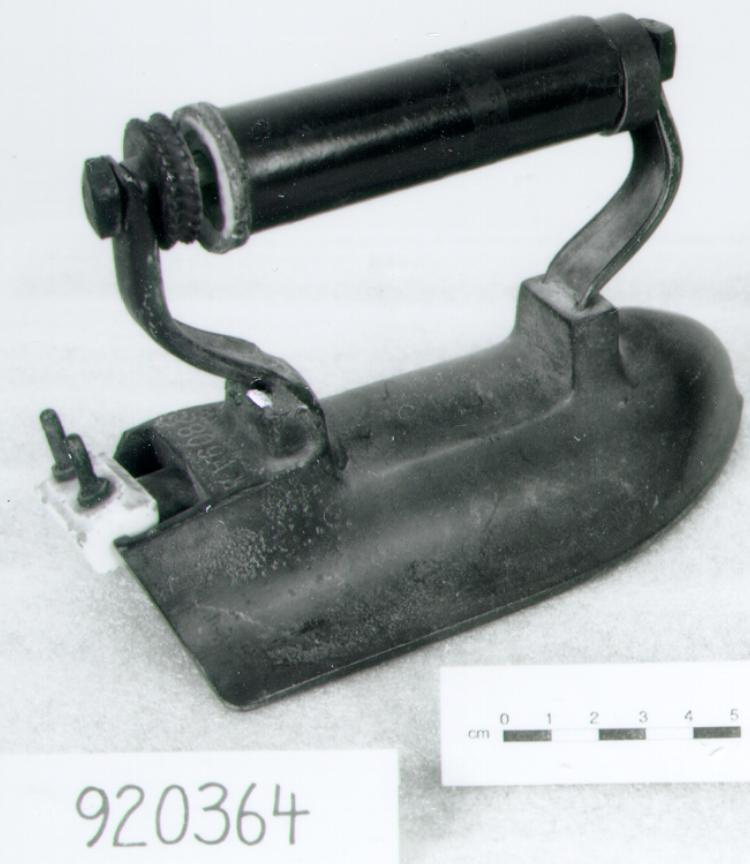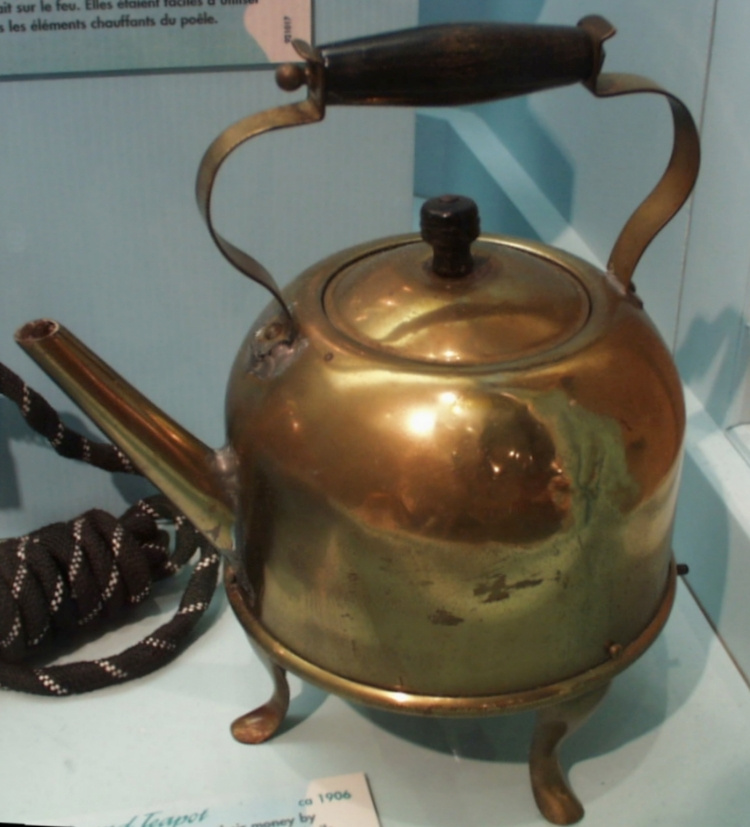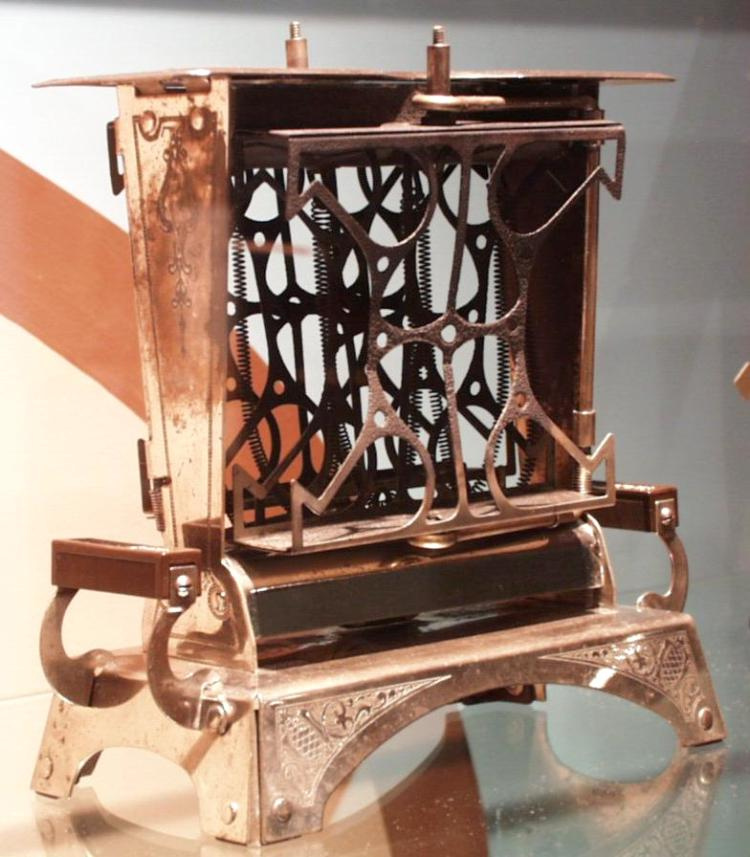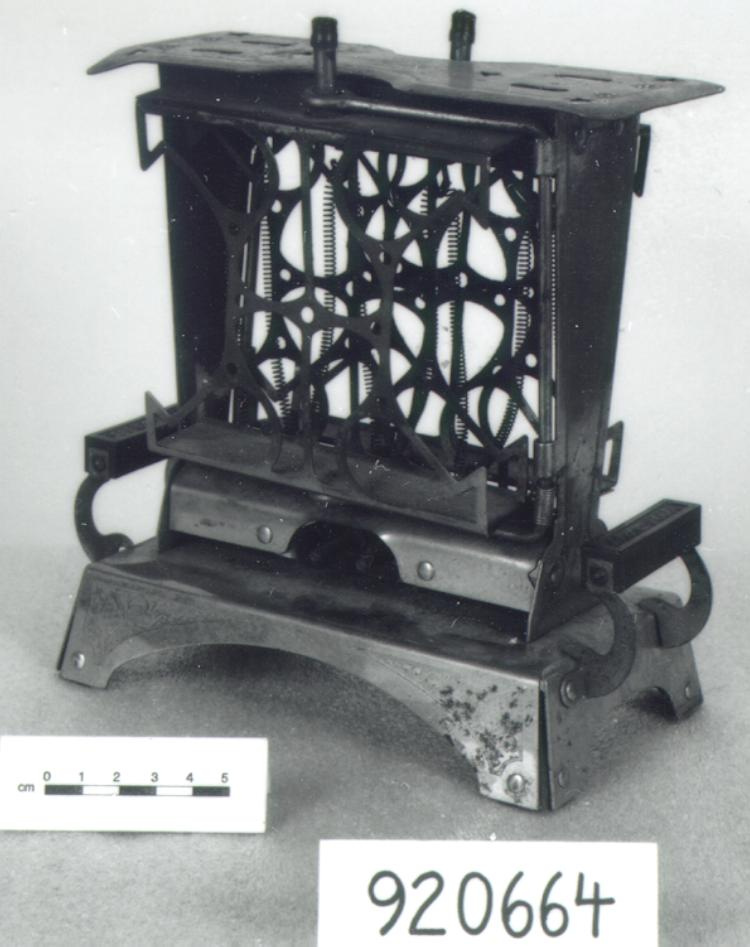Grille-pain
Utiliser cette image
Puis-je réutiliser cette image sans autorisation? Oui
Les images sur le portail de la collection d’Ingenium ont la licence Creative Commons suivante :
Copyright Ingenium / CC BY-NC-ND (Attribution-NonCommercial 4.0 International (CC BY-NC 4.0)
ATTRIBUER CETTE IMAGE
Ingenium,
1992.0664.001
Permalien:
Ingenium diffuse cette image sous le cadre de licence Creative Commons et encourage son téléchargement et sa réutilisation à des fins non commerciales. Veuillez mentionner Ingenium et citer le numéro de l’artefact.
TÉLÉCHARGER L’IMAGEACHETER CETTE IMAGE
Cette image peut être utilisée gratuitement pour des fins non commerciales.
Pour un usage commercial, veuillez consulter nos frais de reproduction et communiquer avec nous pour acheter l’image.
- TYPE D’OBJET
- ELECTRIC/REVERSING SIDE PANEL
- DATE
- 1923
- NUMÉRO DE L’ARTEFACT
- 1992.0664.001
- FABRICANT
- FITZGERALD MFG. CO.
- MODÈLE
- STAR-RITE
- EMPLACEMENT
- Torrington, Connecticut, United States of America
Plus d’information
Renseignements généraux
- Nº de série
- S/O
- Nº de partie
- 1
- Nombre total de parties
- 1
- Ou
- S/O
- Brevets
- S/O
- Description générale
- NICKEL PLATED PRESSED METAL BASE, HOUSING & BREAD RACKS/ SYNTHETIC HANDLE GRIPS/ SYNTHETIC? BREAD RACK TURNING KNOBS
Dimensions
Remarque : Cette information reflète la taille générale pour l’entreposage et ne représente pas nécessairement les véritables dimensions de l’objet.
- Longueur
- 20,2 cm
- Largeur
- 10,0 cm
- Hauteur
- 21,2 cm
- Épaisseur
- S/O
- Poids
- S/O
- Diamètre
- S/O
- Volume
- S/O
Lexique
- Groupe
- Technologie domestique
- Catégorie
- Traitement de nourriture
- Sous-catégorie
- S/O
Fabricant
- Ou
- FITZGERALD
- Pays
- United States of America
- État/province
- Connecticut
- Ville
- Torrington
Contexte
- Pays
- Inconnu
- État/province
- Inconnu
- Période
- Inconnu
- Canada
-
Around the time when this toaster was produced, electricity was just beginning to enter Canadian homes. Prior to this, toasters and other electrical appliances were typically used in commercial settings, such as restaurants. Electrification of homes started initially through the introduction of lighting, leading to the development of some toaster cords that plugged into lightbulb sockets (Ref.1). In 1917, the two-prong system for electrical plugs was established and standardized across North America (Ref.1), and by the 1920s it became more affordable to bring electricity into the home. Between 1941-1951, the percentage of homes with electricity increased significantly, from 69.1% of homes, to 87.8%, with higher percentages in urban regions of the country (Ref. 2). To encourage further use of electricity in homes during low-peak hours, electric companies in Canada began to encourage use of electrical appliances. These companies targeted women in their marketing, promoting the benefits of appliances to reduce workload in the kitchen. Showrooms were set up across Canada by various electric manufacturers, inviting women to view various electrical appliances (Ref.1). As Canadians were introduced to the benefits of electricity in the kitchen, there was initially higher uptake of small electric appliances, such as toasters and irons, than the larger appliances. Between 1952-1960, the total number of toasters that were manufactured in Canada increased from 198,200 to 278,567 toasters total, or a total value of $1.2 million to $2.6 million (Ref.3). By 1931, 40% of homes across Canada owned a toaster (Ref.2). - Fonction
-
To toast one side of bread at a time. Can toast up to two slices of bread at once. - Technique
-
The Star-Rite Toaster, manufactured by Fitzgerald Manufacturing Co., is very decorative in nature. Floral patterns cover the base of the toaster, and the bread cages are geometric and intricate in nature, drawing from the art deco style (Ref.4). Stars are cut out of the metal, alluding to the company branding of Star-Rite products. The metal baskets that hold the toast are on each side of the toaster. There are pivot points in the center of these baskets, and they swivel outwards from one side, allowing for the user to pull out and twist the toast so that the other side can be toasted. While this made the process of flipping bread easier, it did still require that the user paid close attention to their bread as it toasted. This has led to many instances of burnt toast. This design flaw eventually led to the development of the pop-up toaster in 1919 (Ref.5). - Notes sur la région
-
Inconnu
Détails
- Marques
- MFR'S MARKS INCISED ON UNDERSIDE OF BASE READ: 'STAR ELECTRIC TOASTER/ PATENTED/ 105-115 VOLTS/ 550 W/MANUFACTURED BY/ FITZGERALD MFG. CO./ TORRINGTON, CONN./ 75000'/ RAISED WRITING ON HANDLE GRIPS READS: 'Star-Rite'
- Manque
- ELECTRICAL CORD From CA of 03/17/1994 by Tony Missio: Yes - missing cord
- Fini
- BASE, HOUSING & RACKS METAL WITH POLISHED NICKEL FINISH/ HANDLE GRIPS BROWN SYNTHETIC/ BREAD RACK KNOBS BLACK SYNTHETIC?
- Décoration
- SIX STAR-SHAPED CUT-OUTS ON TOP OF HOUSING/ DECORATIVE ENGRAVING ON FRONT & BACK OF BASE & SIDES & TOP OF HOUSING/ ABSTRACT DESIGN IN METAL GRILLWORK ON SIDES OF BREAD RACKS
FAIRE RÉFÉRENCE À CET OBJET
Si vous souhaitez publier de l’information sur cet objet de collection, veuillez indiquer ce qui suit :
FITZGERALD MFG. CO., Grille-pain, vers 1923, Numéro de l'artefact 1992.0664, Ingenium - Musées des sciences et de l'innovation du Canada, http://collection.ingeniumcanada.org/fr/id/1992.0664.001/
RÉTROACTION
Envoyer une question ou un commentaire sur cet artefact.
Plus comme ceci
